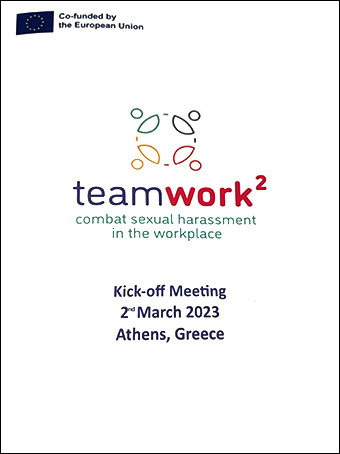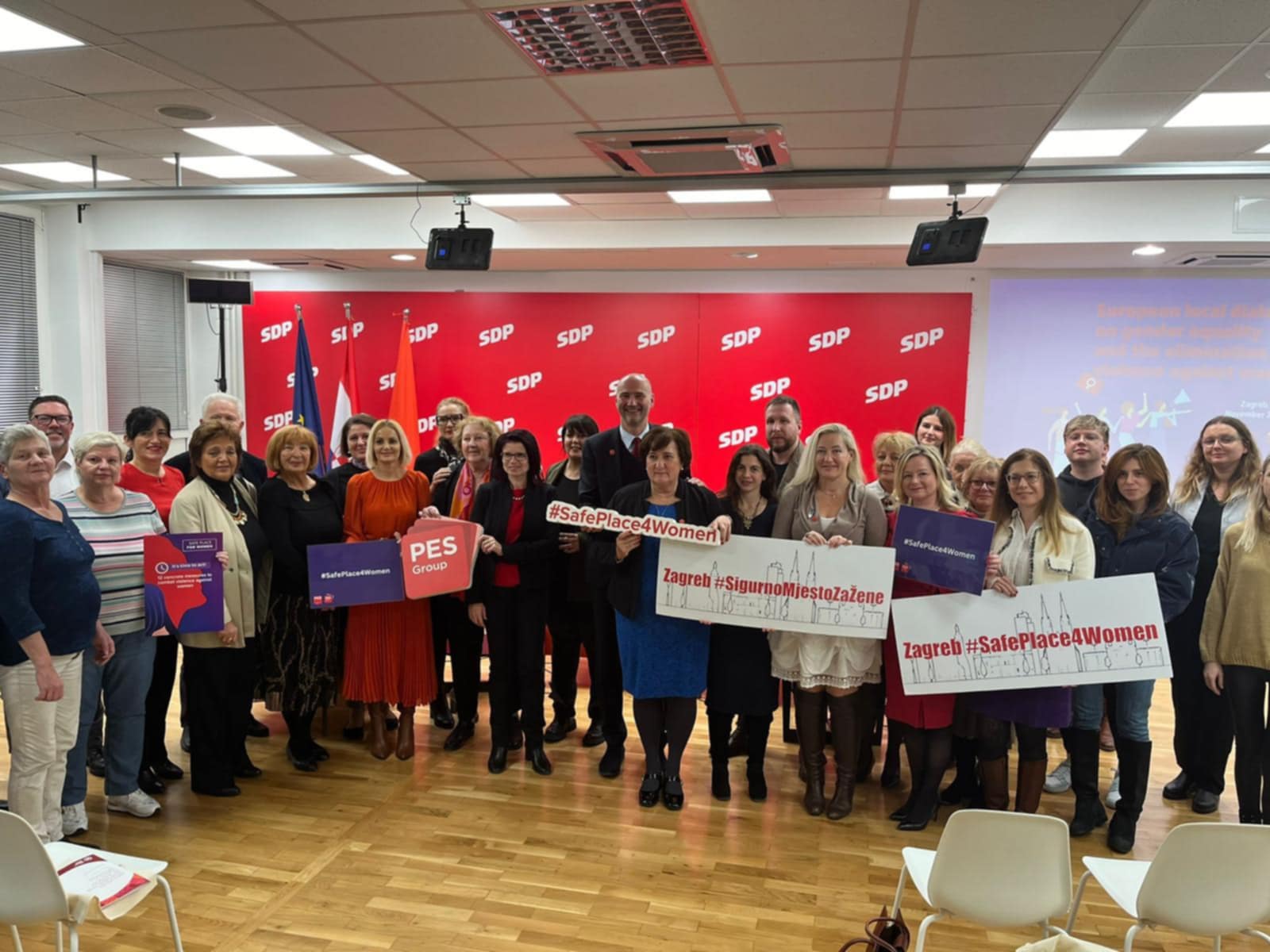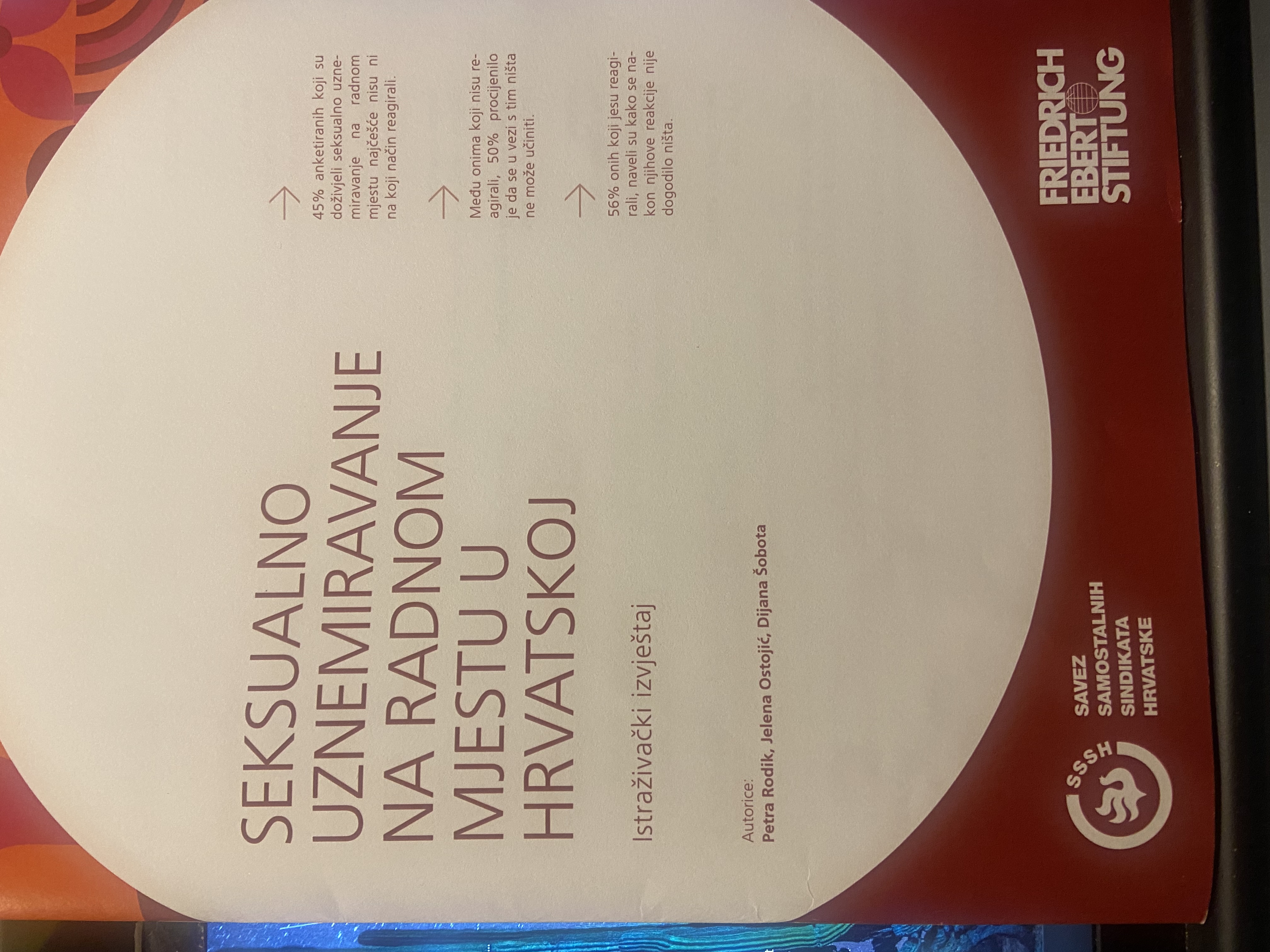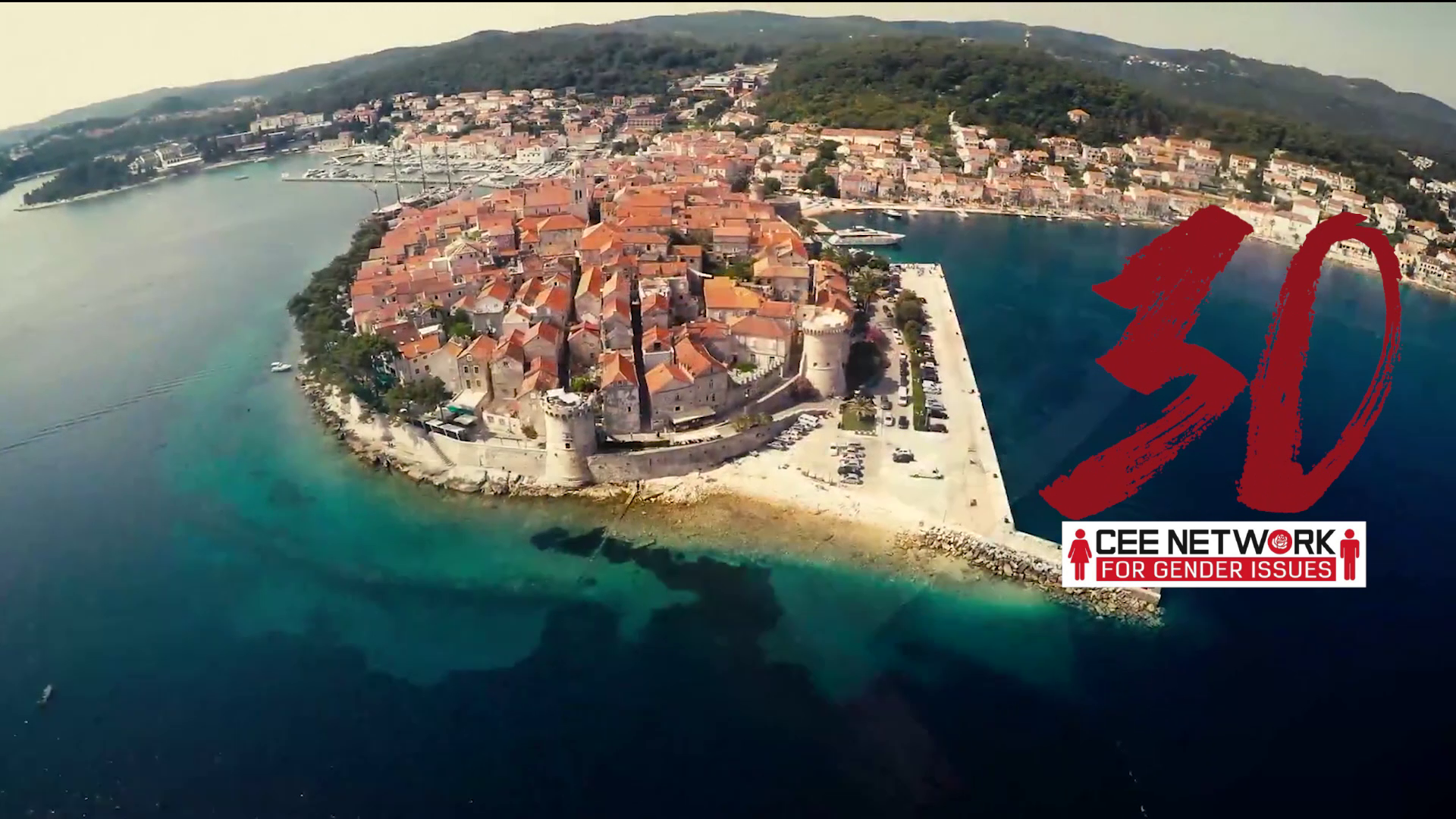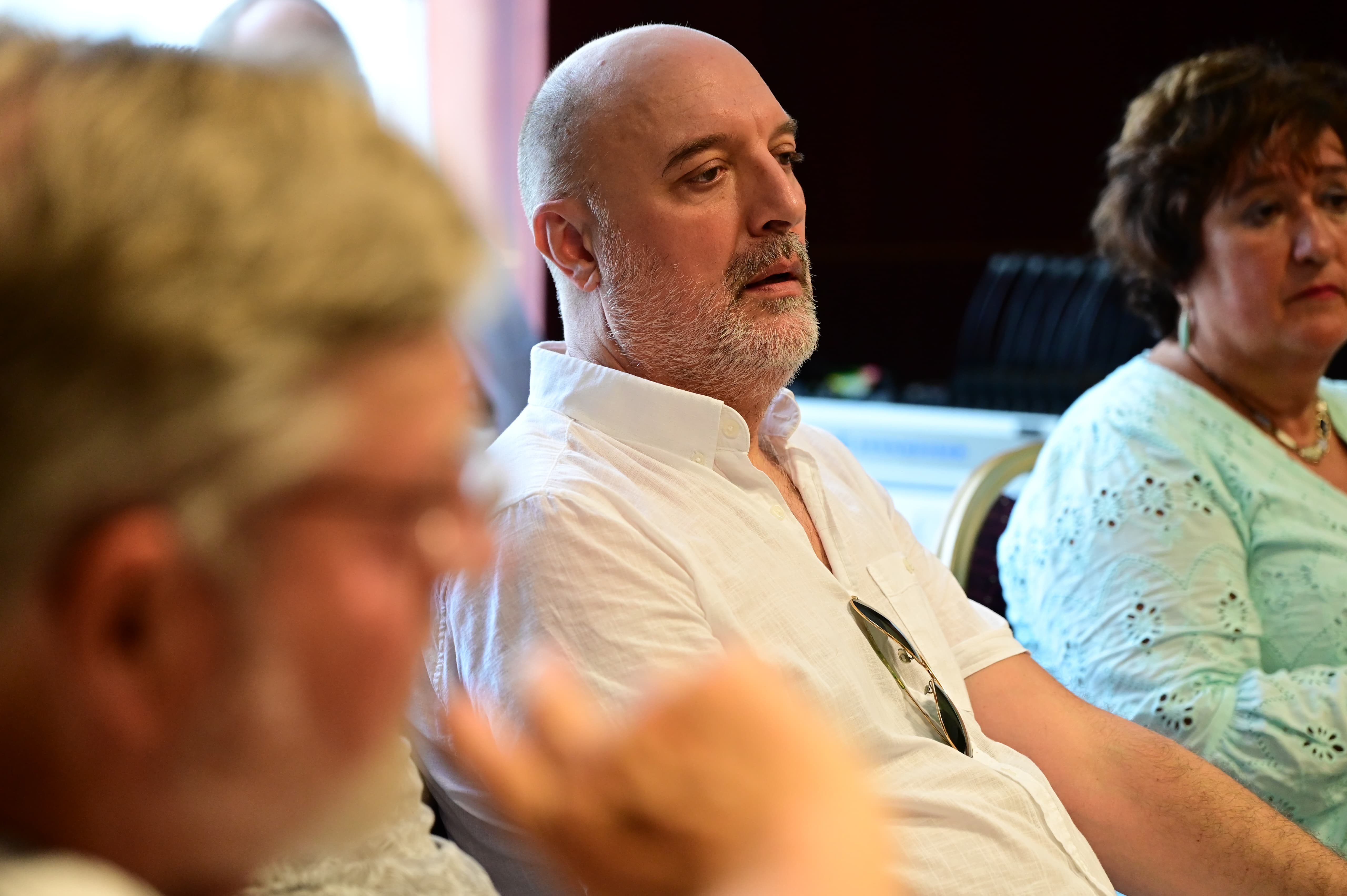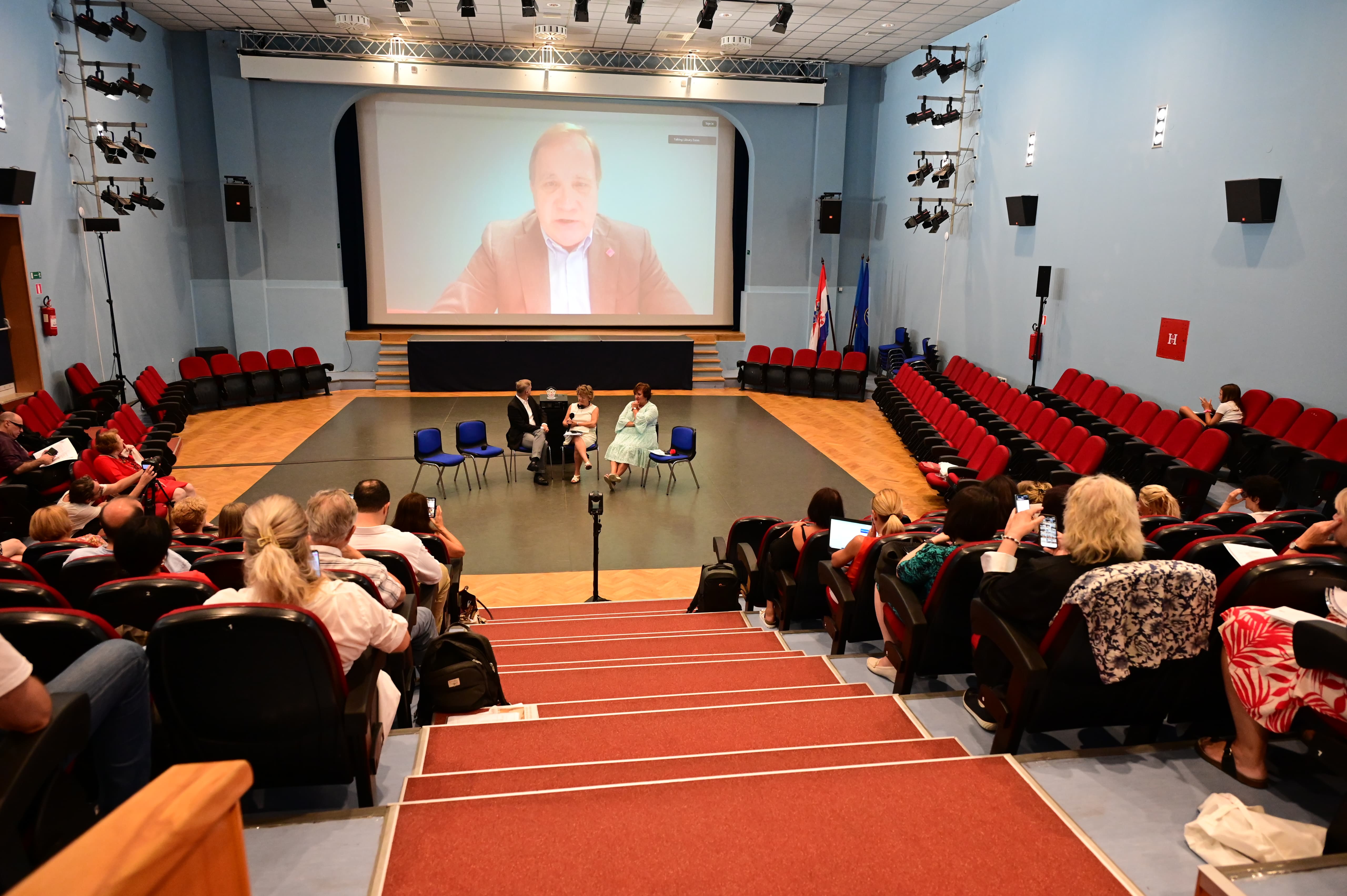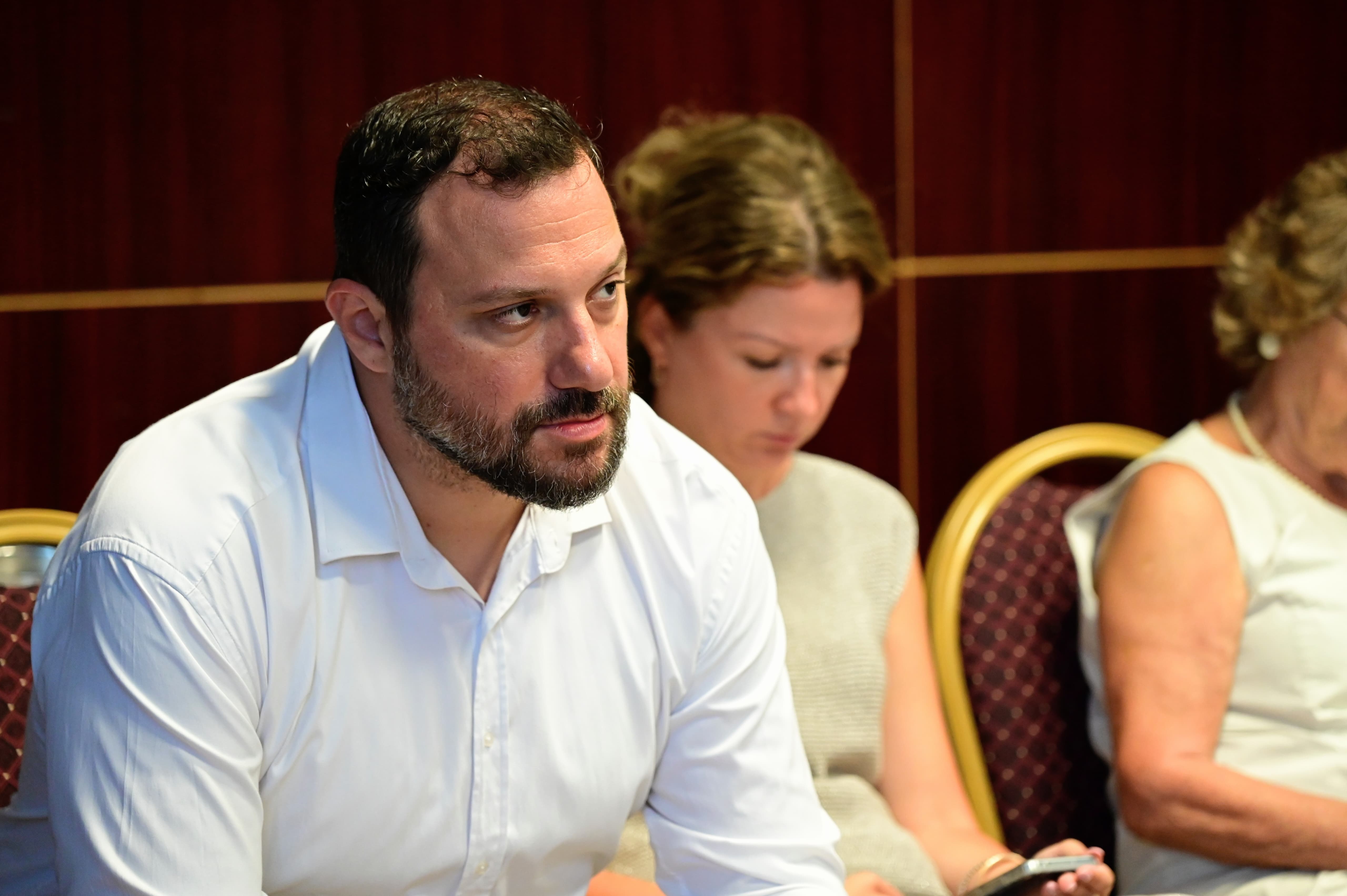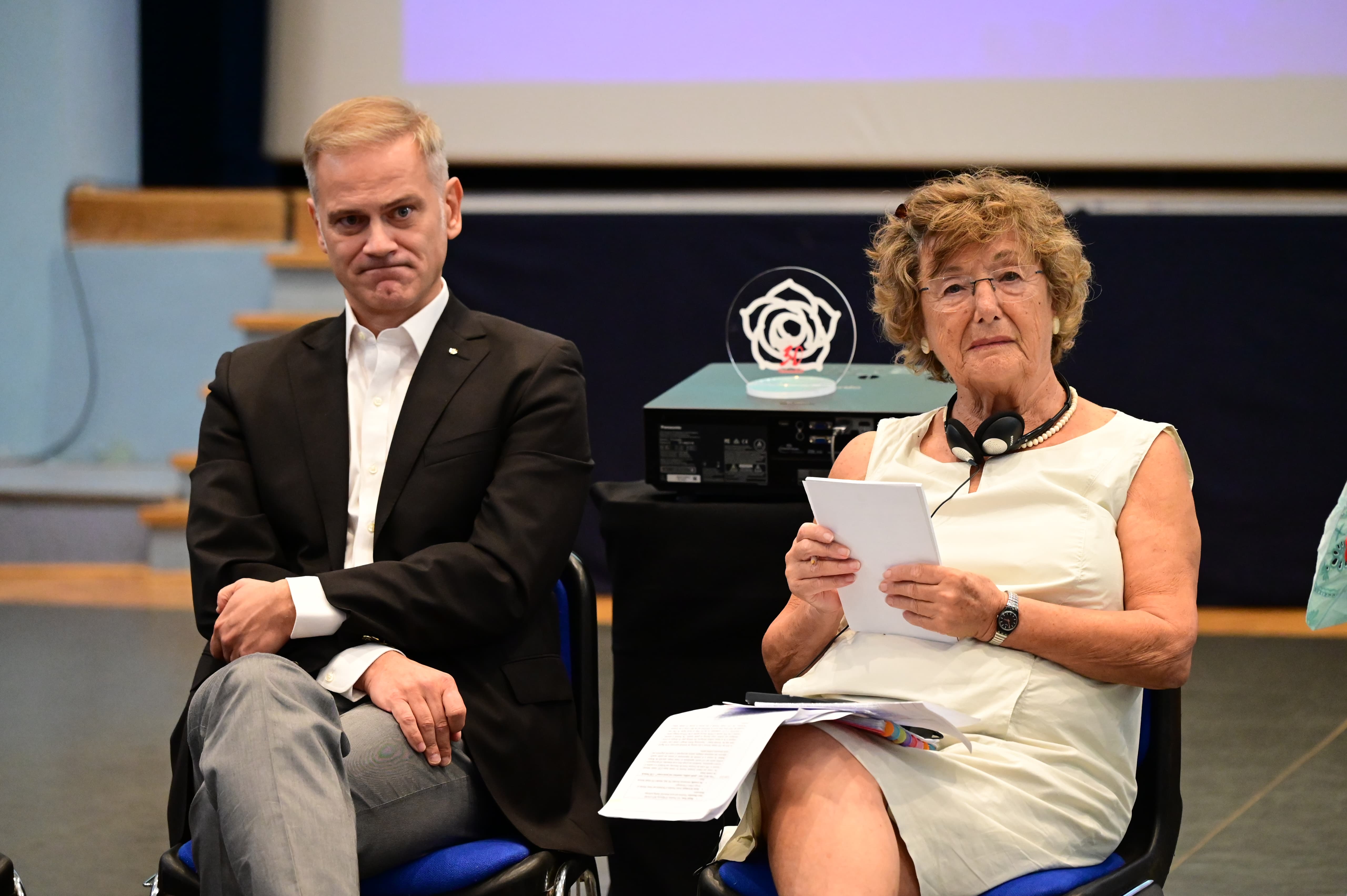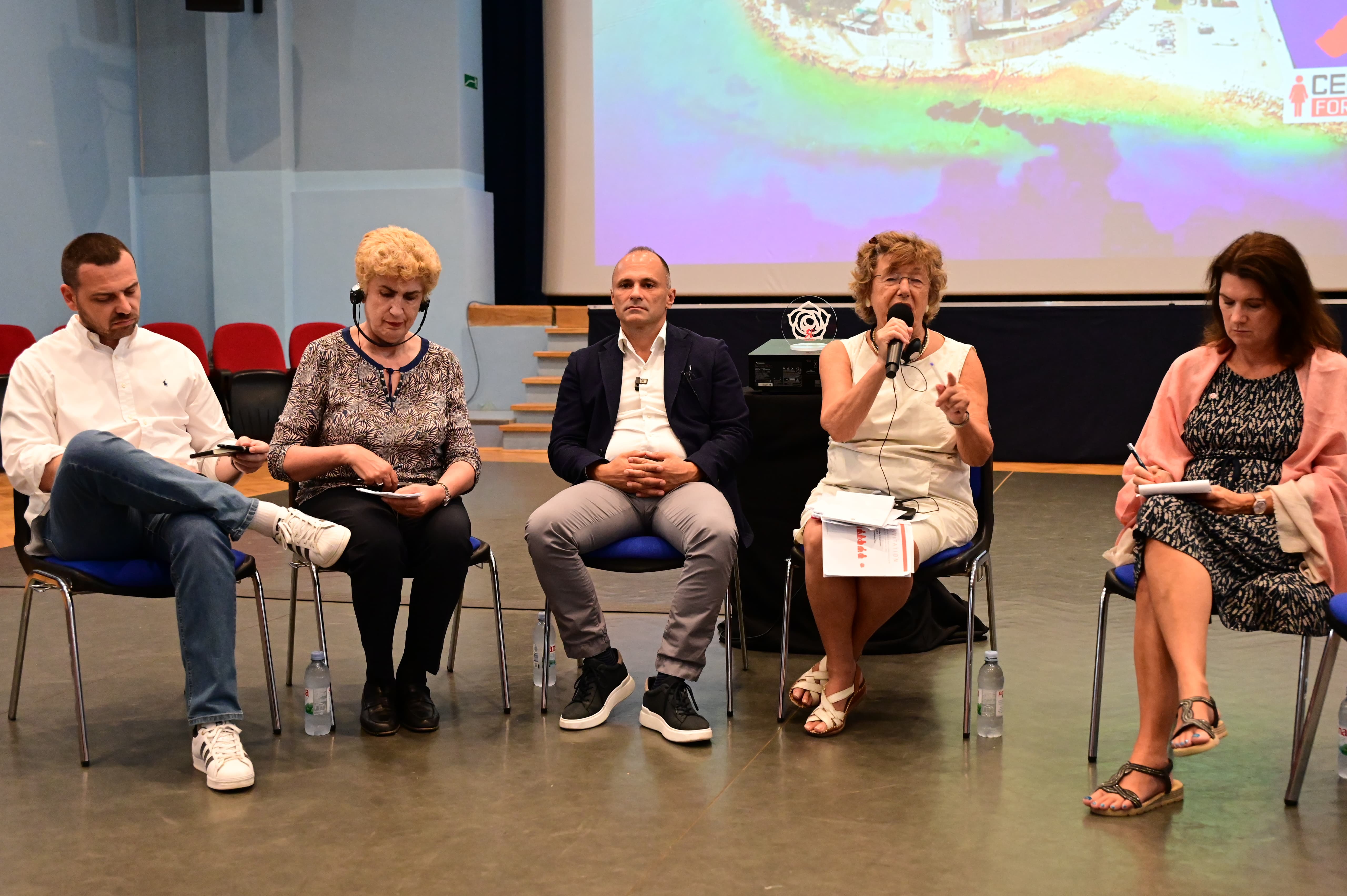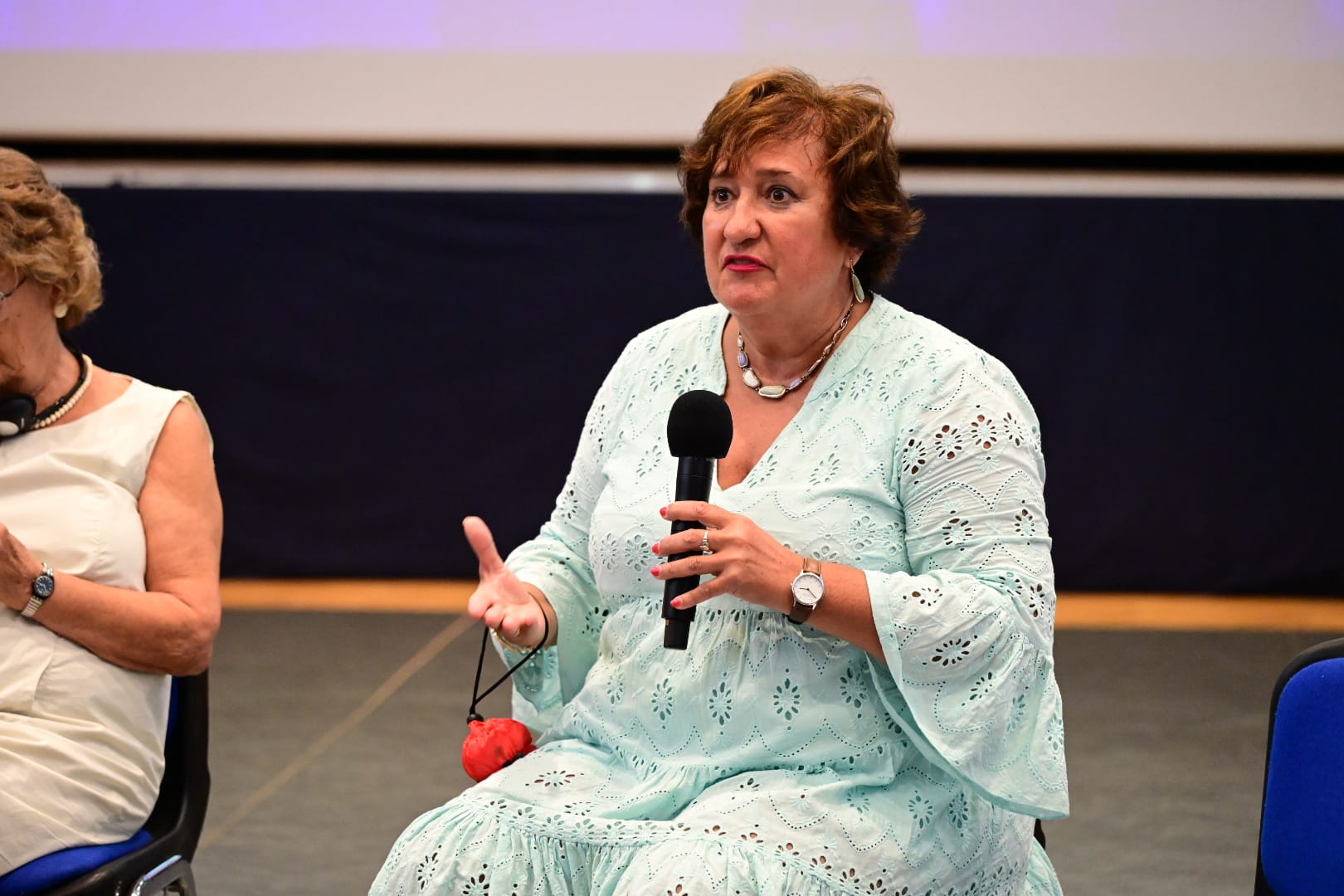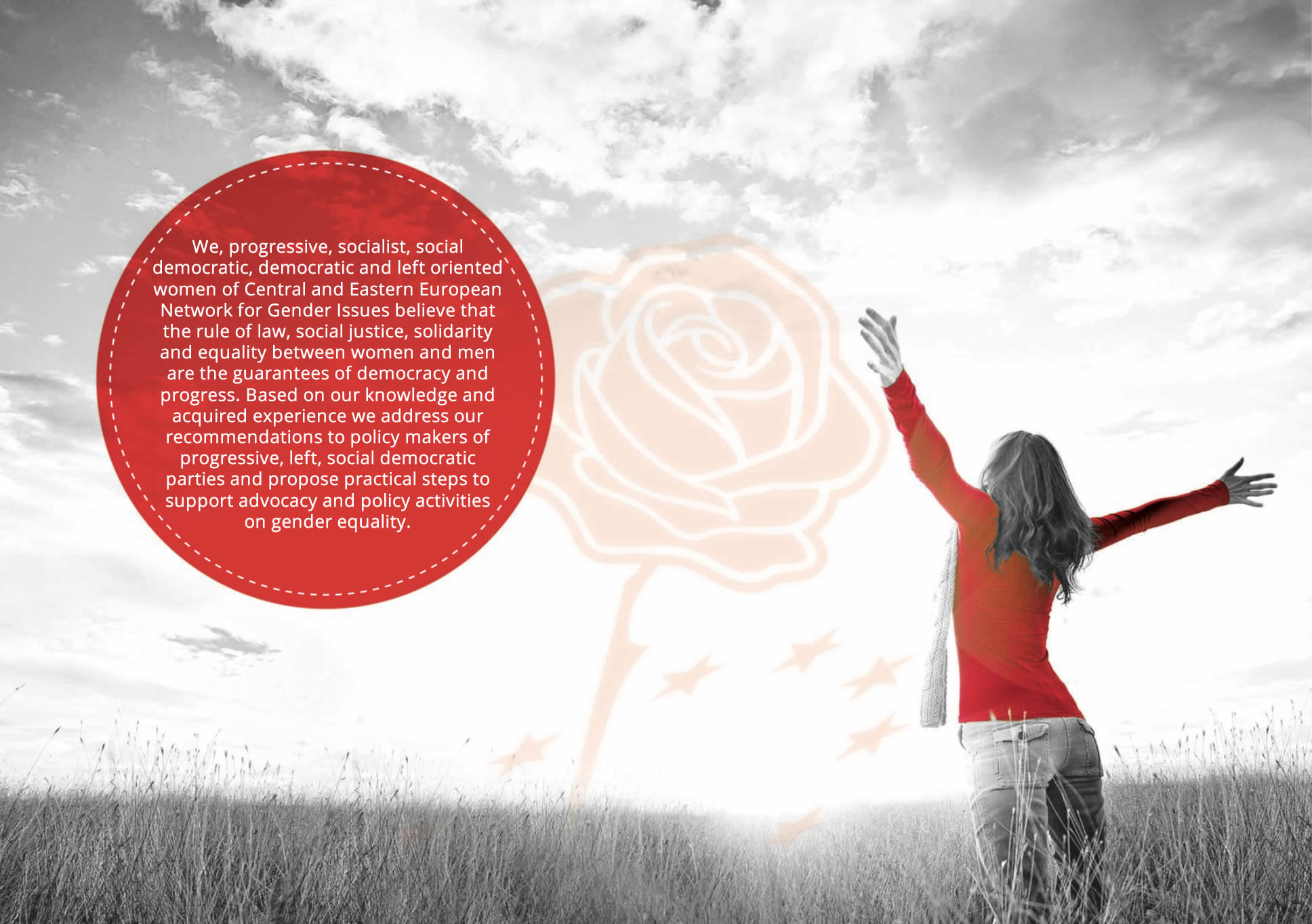
2025 Korčula School
Regional High-Level Political Meeting Tirana, Albania, 14 - 16 November 2025
The 2025 High Level Korčula School think tank is organised in cooperation with the Socialist Party of Albania / Qemal Stafa Foundation and in partnership with the Olof Palme International Center and the European Forum for Democracy and Solidarity.
PES Congress 2025
16 - 18 October, Amsterdam
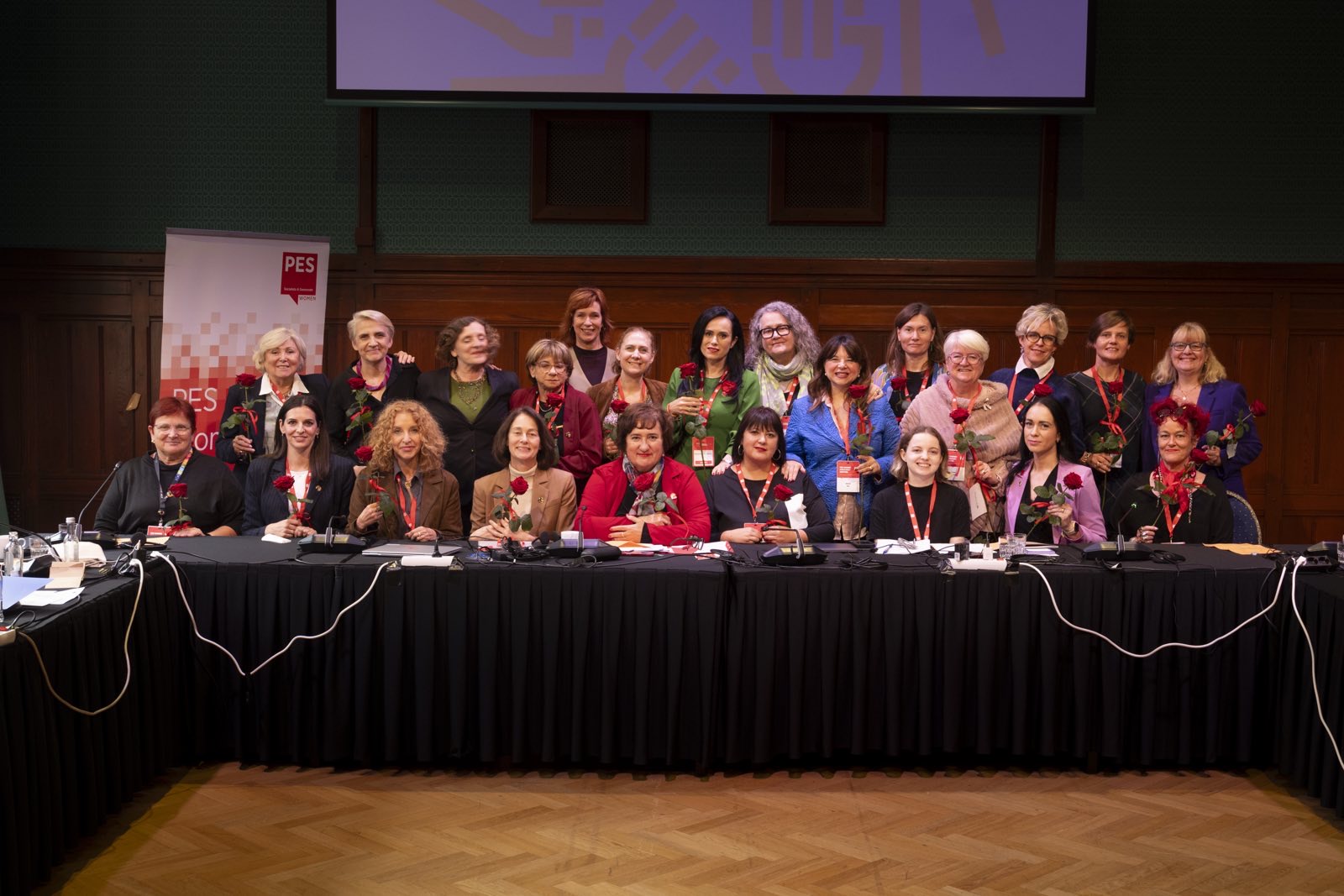
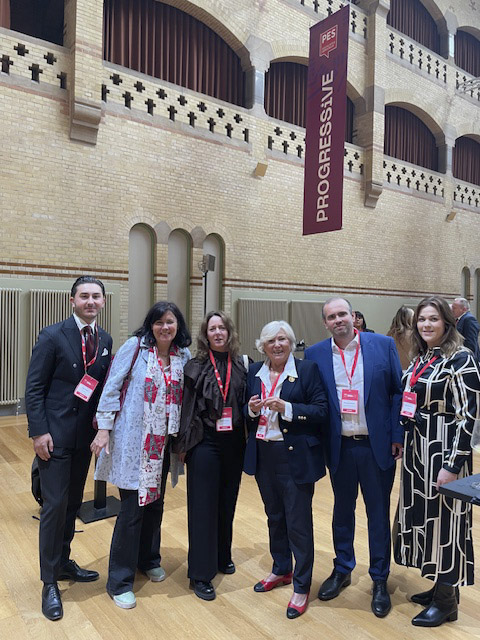
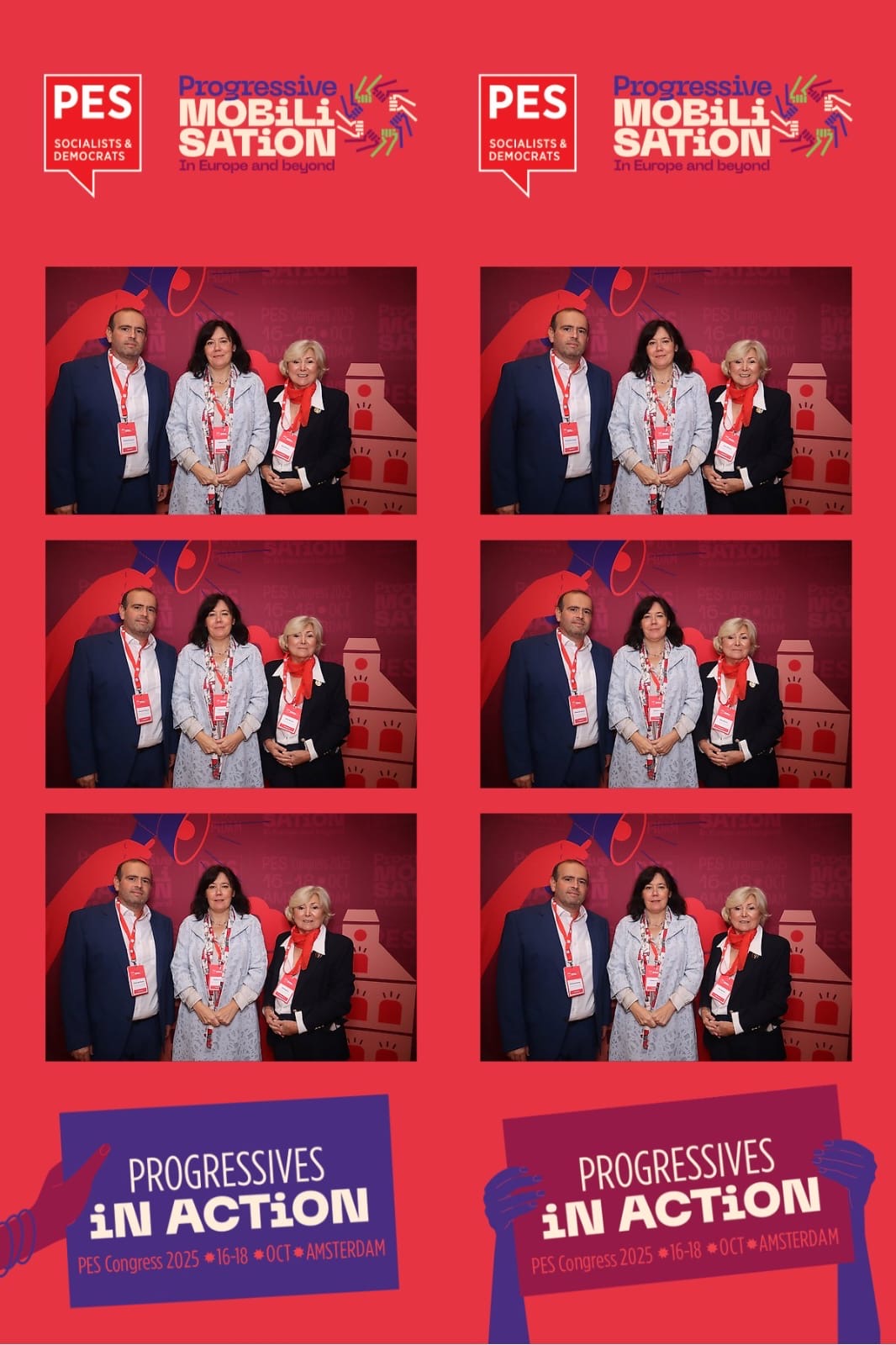
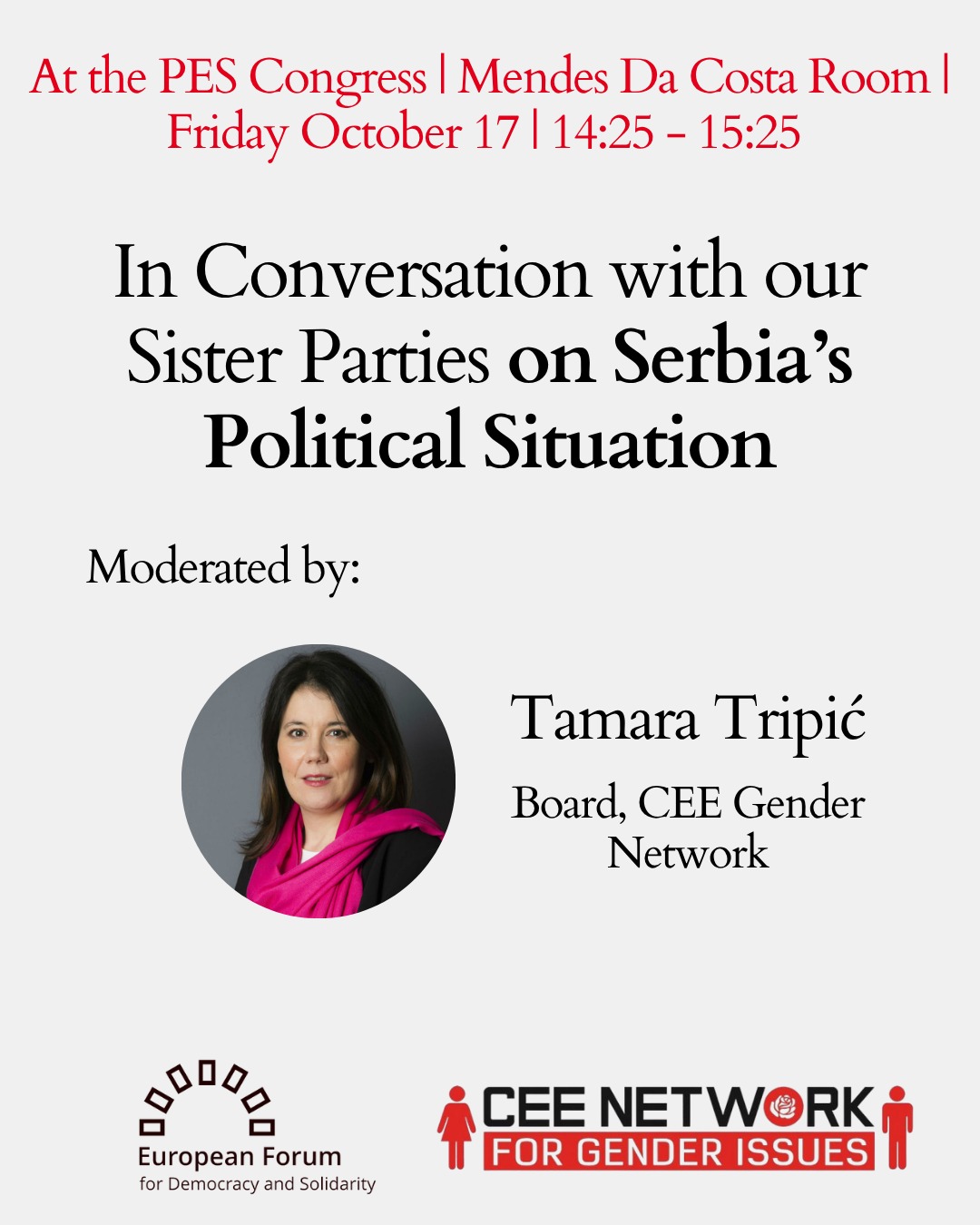
The Regional Round Table Conference “One Region. One Vision. One Future.”
27 September 2025 Skopje, North Macedonia
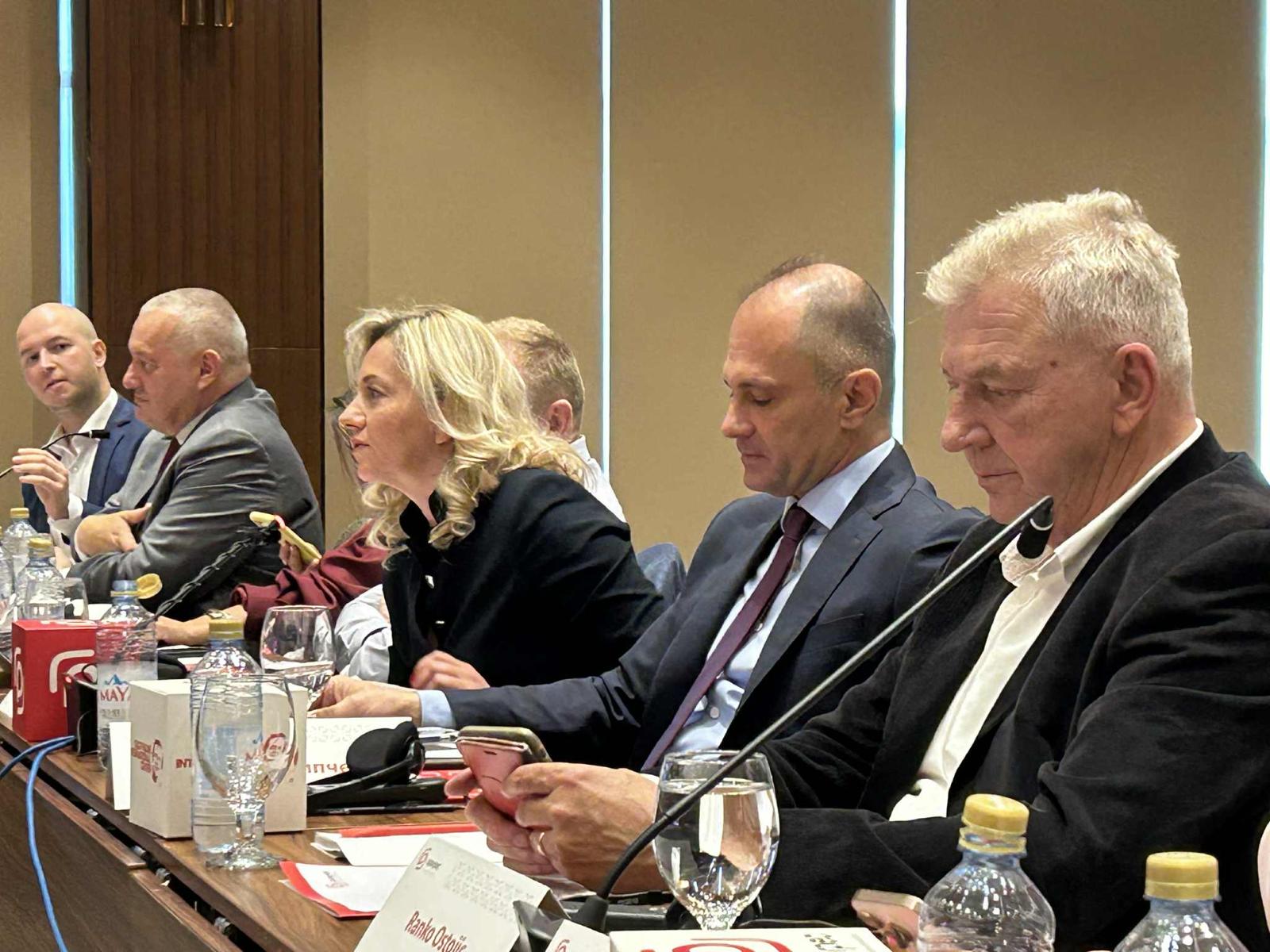
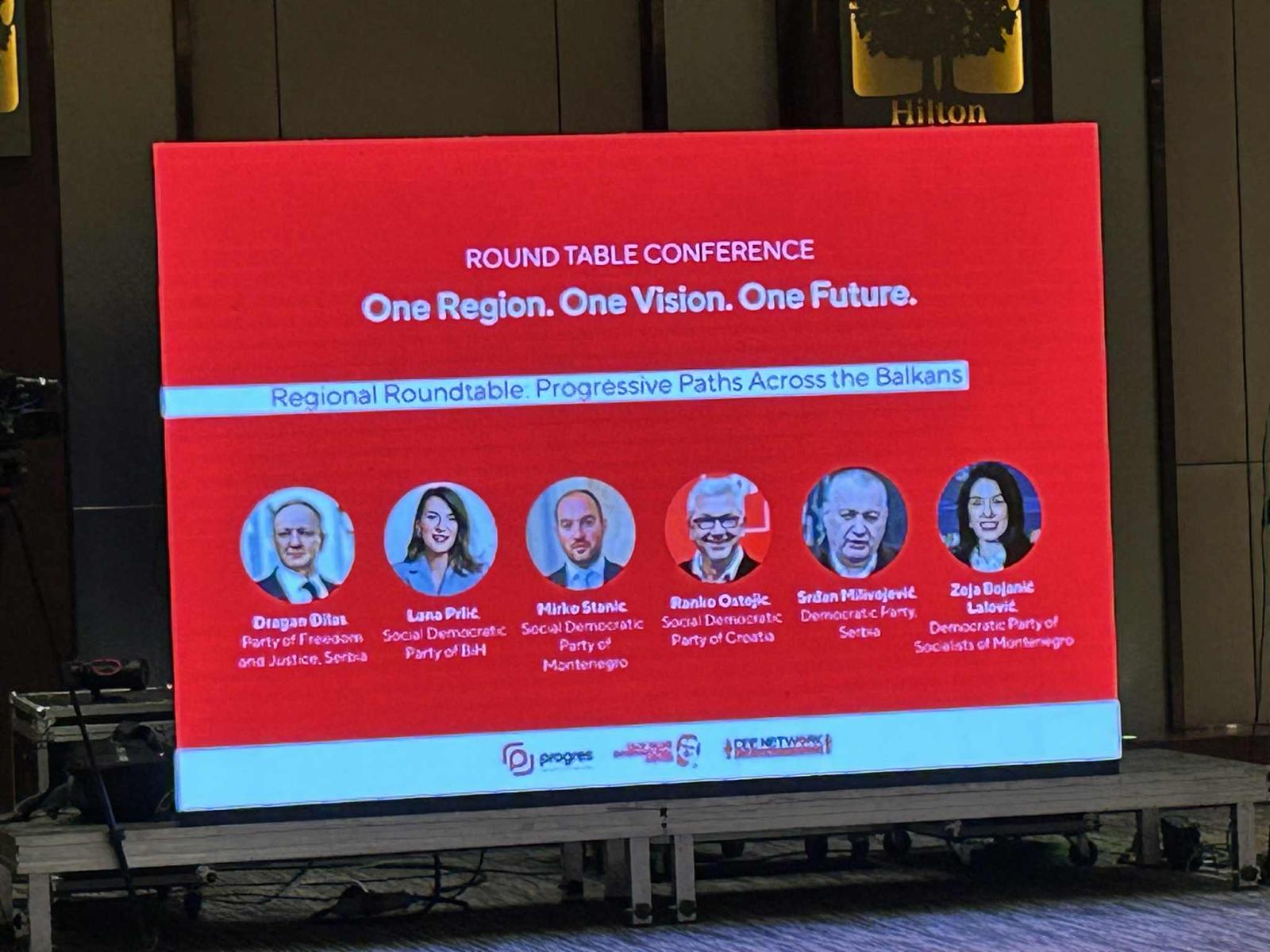

Korčula School 2025
27 - 28 August 2025
Sažetak Korčula School Think Tank 2025
PESW Statutory meeting
Malta, June 2025


CEE - Board and Advisory Council
Tirana, April 2025

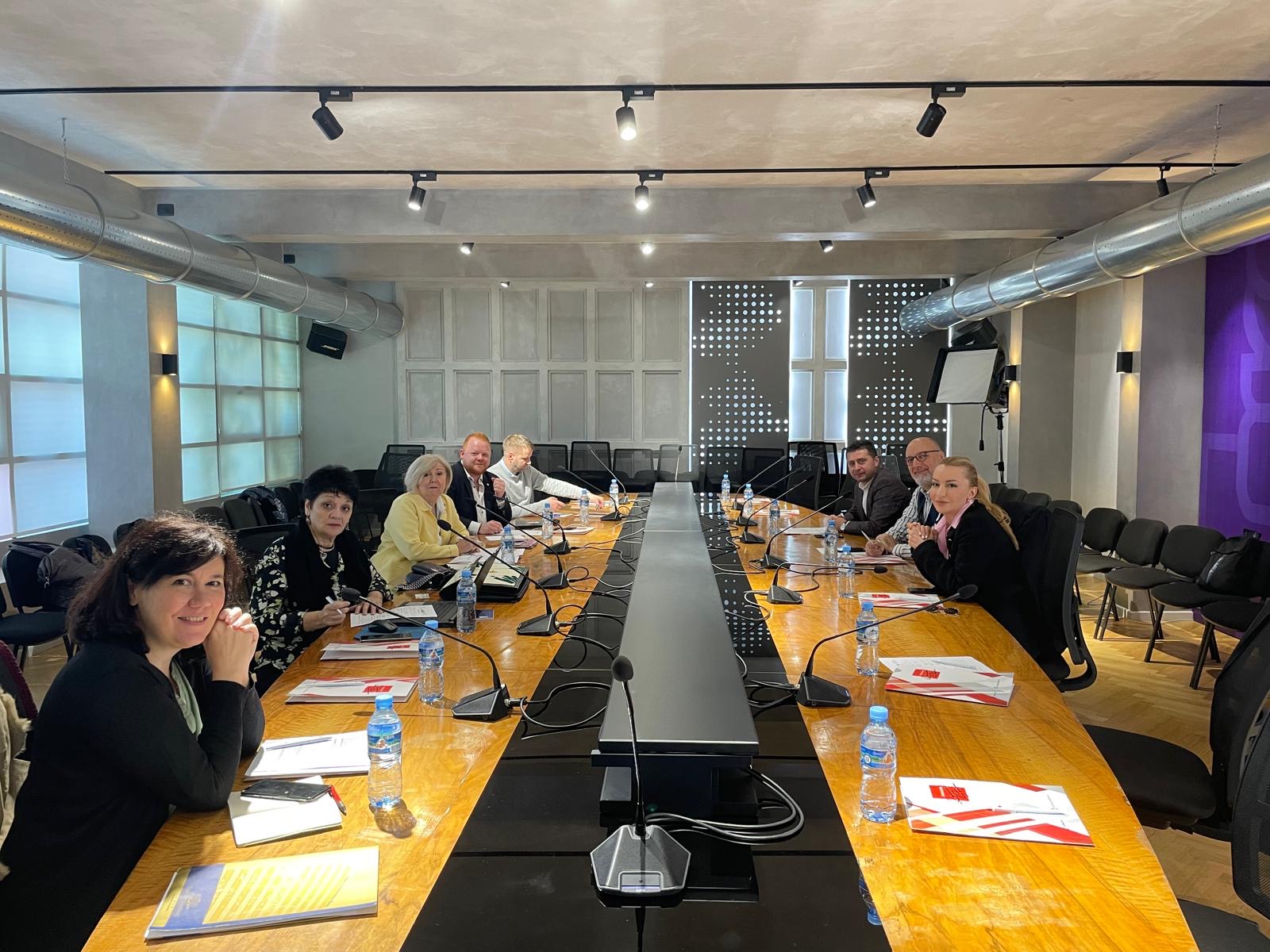


CEE Gender Network Supports Serbia's Fight for Democracy
January 2025, Belgrade
A Stand for Justice and Transparency
In January 2025, Serbian citizens and students, both men and women, took to the streets demanding justice, democracy, the rule of law, and transparency.
CEE Gender Network stands in solidarity with their cause, recognizing the importance of their peaceful protests.
“Democracy is a universal struggle, and we are here to support those fighting for fundamental rights,” said Daša Šilović, Chair of the CEE Gender Network.
Upcoming Discussion: Serbia at the Crossroad
To deepen the understanding of Serbia's current situation and its implications for democracy in the region, CEE Gender Network is organizing a virtual discussion on February 4, 2025.
Our Commitment to Change
As an organization dedicated to democracy, gender equality, and human rights, CEE Gender Network emphasizes the importance of civic engagement and collective political action in driving meaningful democratic change. We support the citizens of Serbia in their quest for a better future.
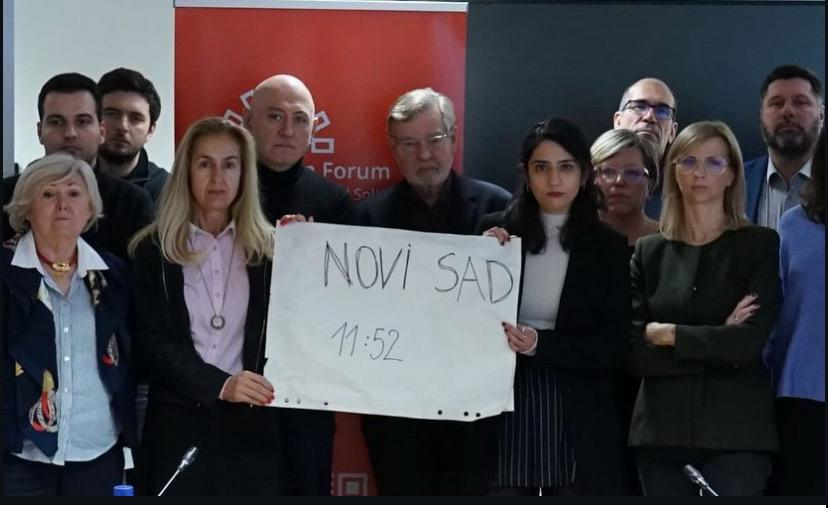
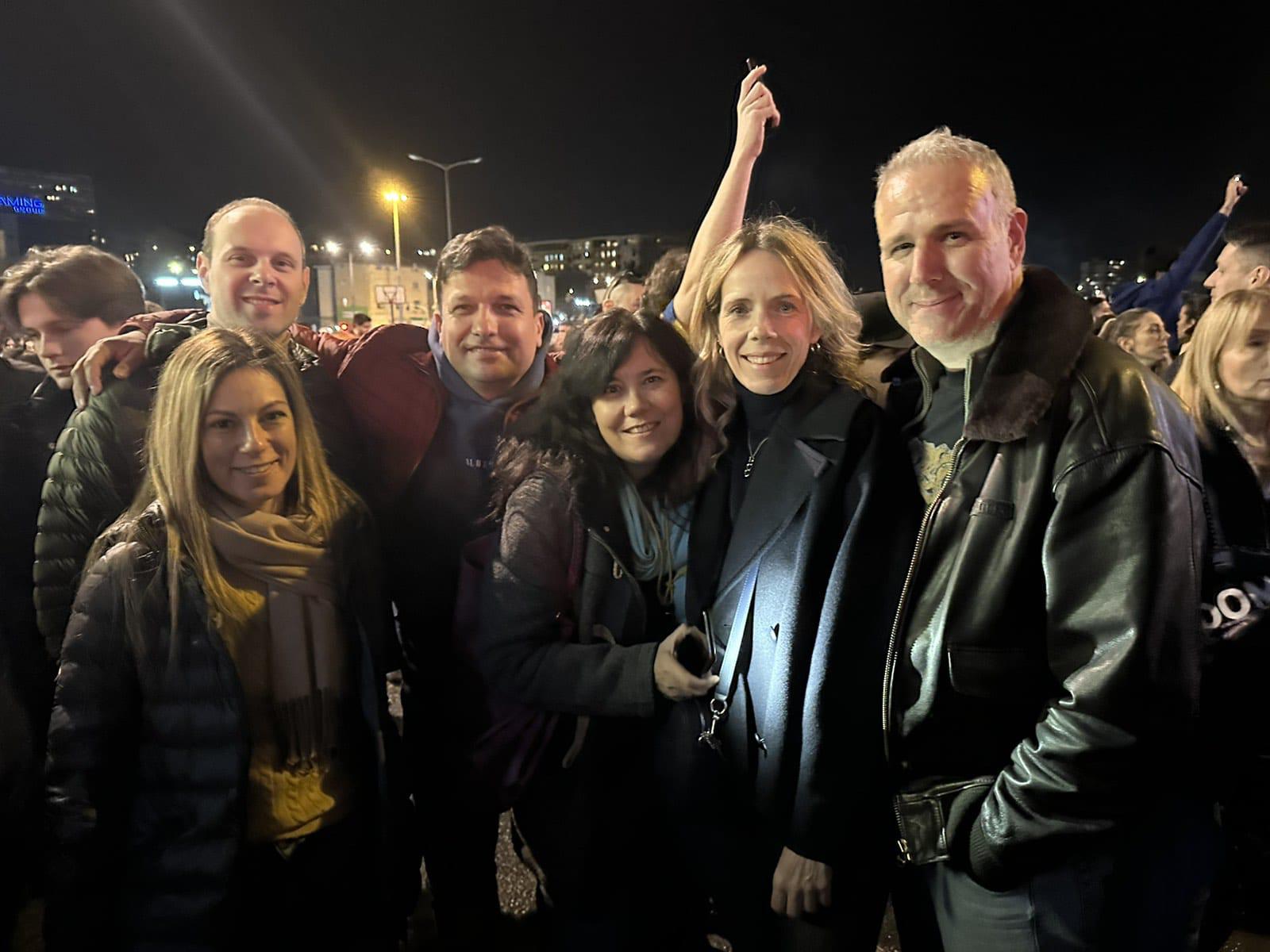
Progres Institute for Social Democracy
Panel Discussion: The Political Dynamics of Right-Wing Populism in Europe and the Western Balkans
Progres Institute for Social Democracy Hosts Panel Discussion on Right-Wing Populism in Macedonia
In a significant event held in Skopje, Macedonia, the Progres Institute for Social Democracy organized a panel discussion addressing the critical issue of right-wing populism. The conference, titled "Guarding Democracy: Confronting the Rise of Right-Wing Populism," brought together experts and thought leaders to explore the impact of populism on democratic values and social cohesion in Europe and the Western Balkans. The event featured prominent speakers, including PhD. Yannick Lahti, Dasha Silovic, and Sead Rizvanovic, and aimed to foster dialogue on the challenges posed by rising nationalism and disinformation campaigns.
The Progres Institute for Social Democracy recently organized a pivotal panel discussion addressing the pressing issue of right-wing populism. This phenomenon often exploits fear, intolerance, and discrimination, leading to societal polarization and disrupting social cohesion.
As a political institute and think tank, the Progres Institute promotes social democratic values in Macedonia by assisting local social democratic parties in creating, implementing, and promoting their policies.
Featured Speakers:
- PhD. Yannick Lahti: Author of two books and freelance journalist from Finland.
- Dasha Silovic: Chair of the CEE Gender Network, Croatia.
- Sead Rizvanovic: Foreign Policy Editor at TV24, North Macedonia.
Moderated by: Marko Mihailoski, Executive Director of Progres Institute.
Event Details:
- Date: December 14-15
- Location: Laboratorium, Skopje
This Regional Think-Tank Conference, titled "Guarding Democracy: Confronting the Rise of Right-Wing Populism," explored how the rise of right-wing populism has reshaped the political landscape in Europe and the Western Balkans, challenging democratic values and deepening societal divisions.
As political challenges emerged, right-wing populism frequently resorted to nationalism, with disinformation campaigns often originating from external influences, including Russia, Turkey, and China. The ongoing conflict in Ukraine served as a critical example, where narratives were manipulated to portray Ukraine as the aggressor.
We believe that societal change must stem from active engagement and the introduction of new ideas and initiatives.
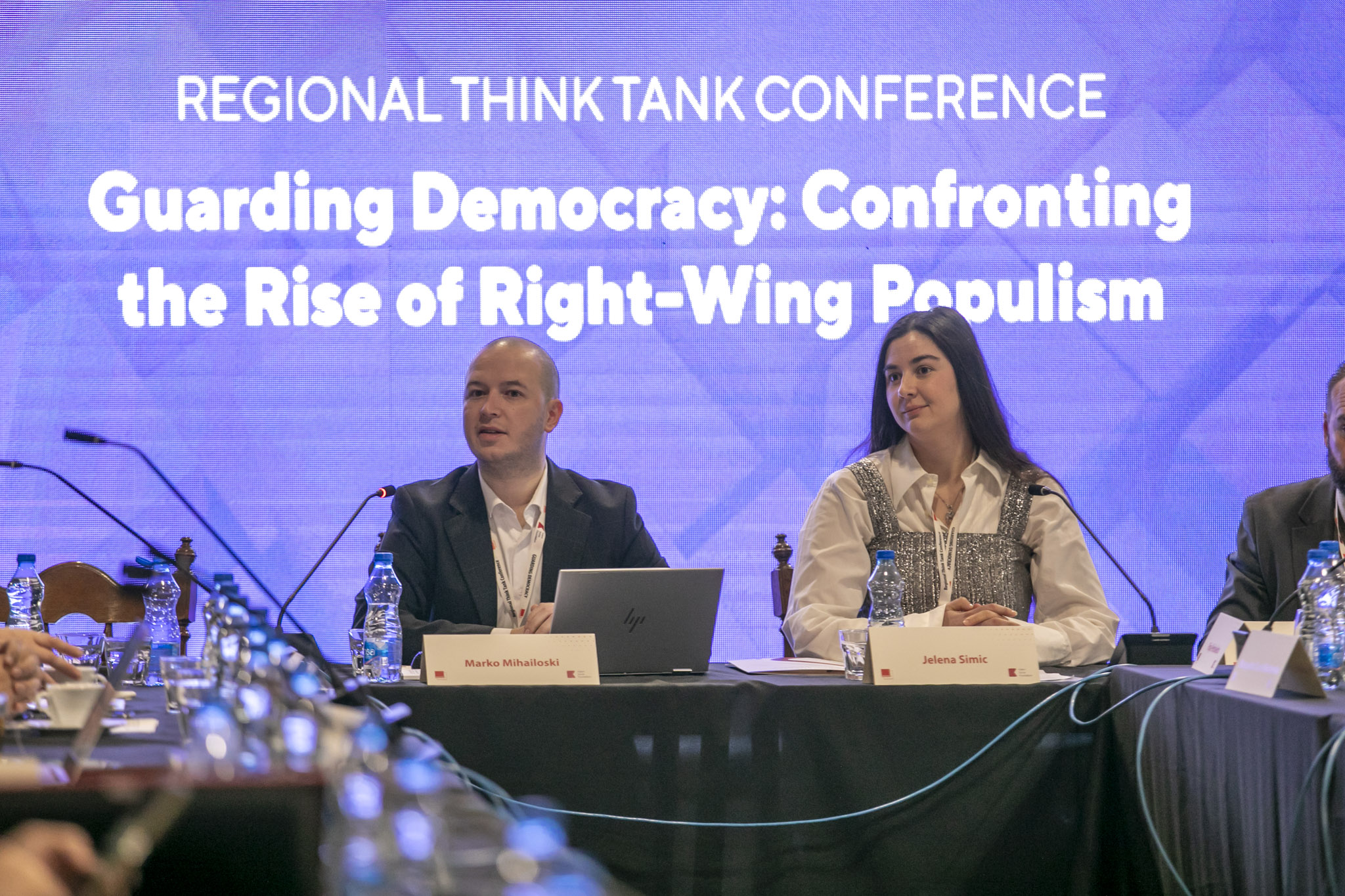
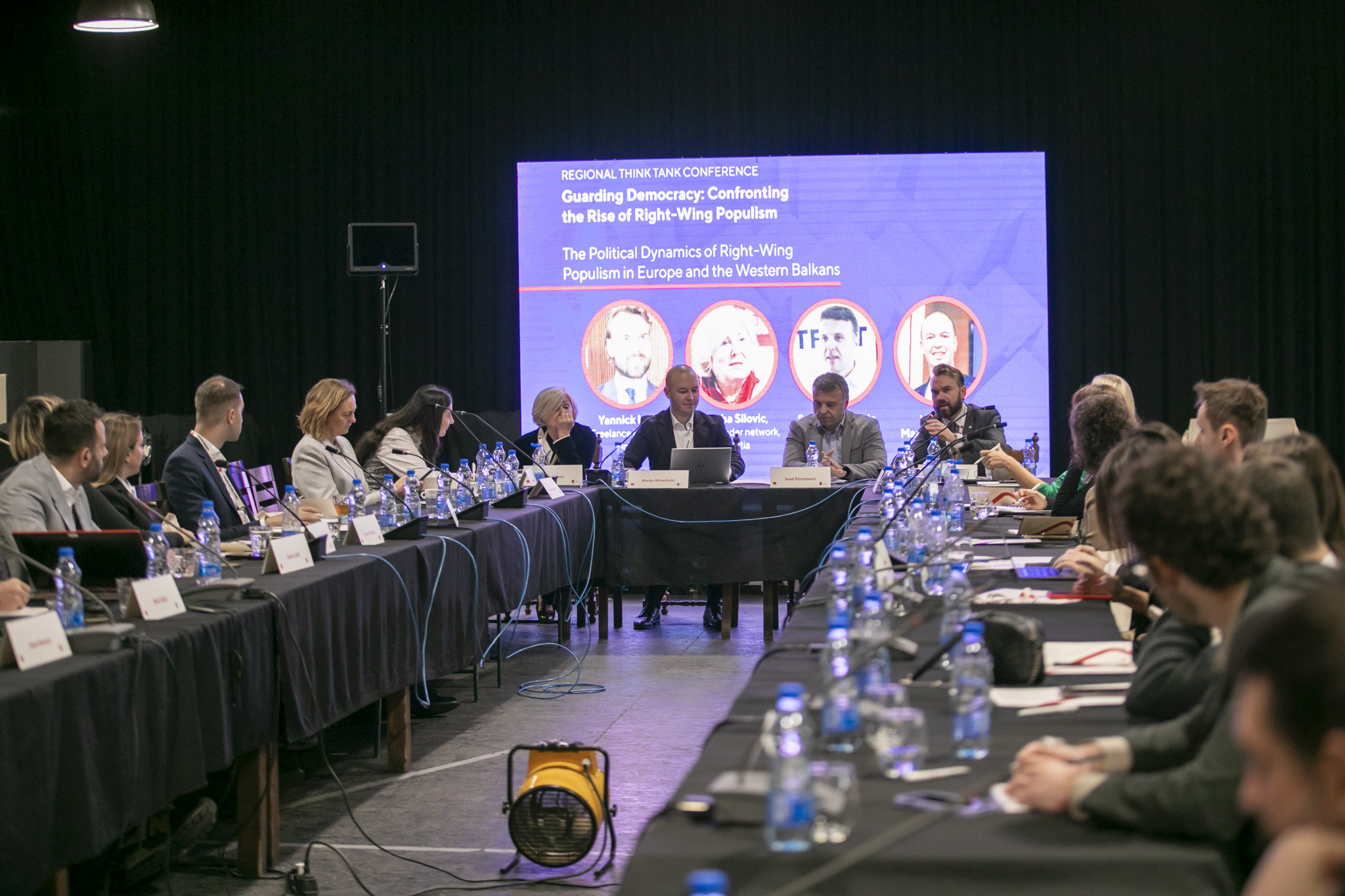
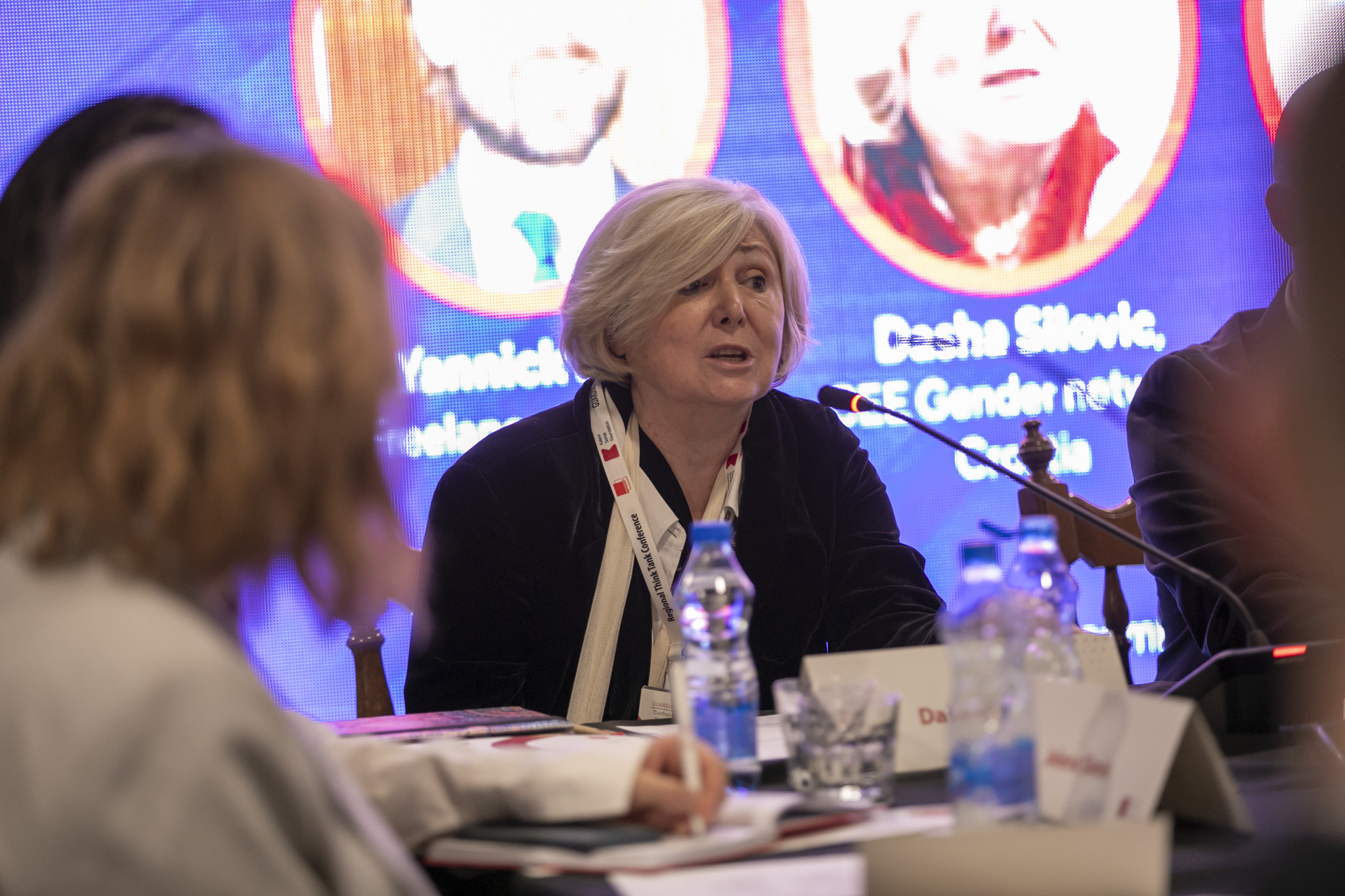
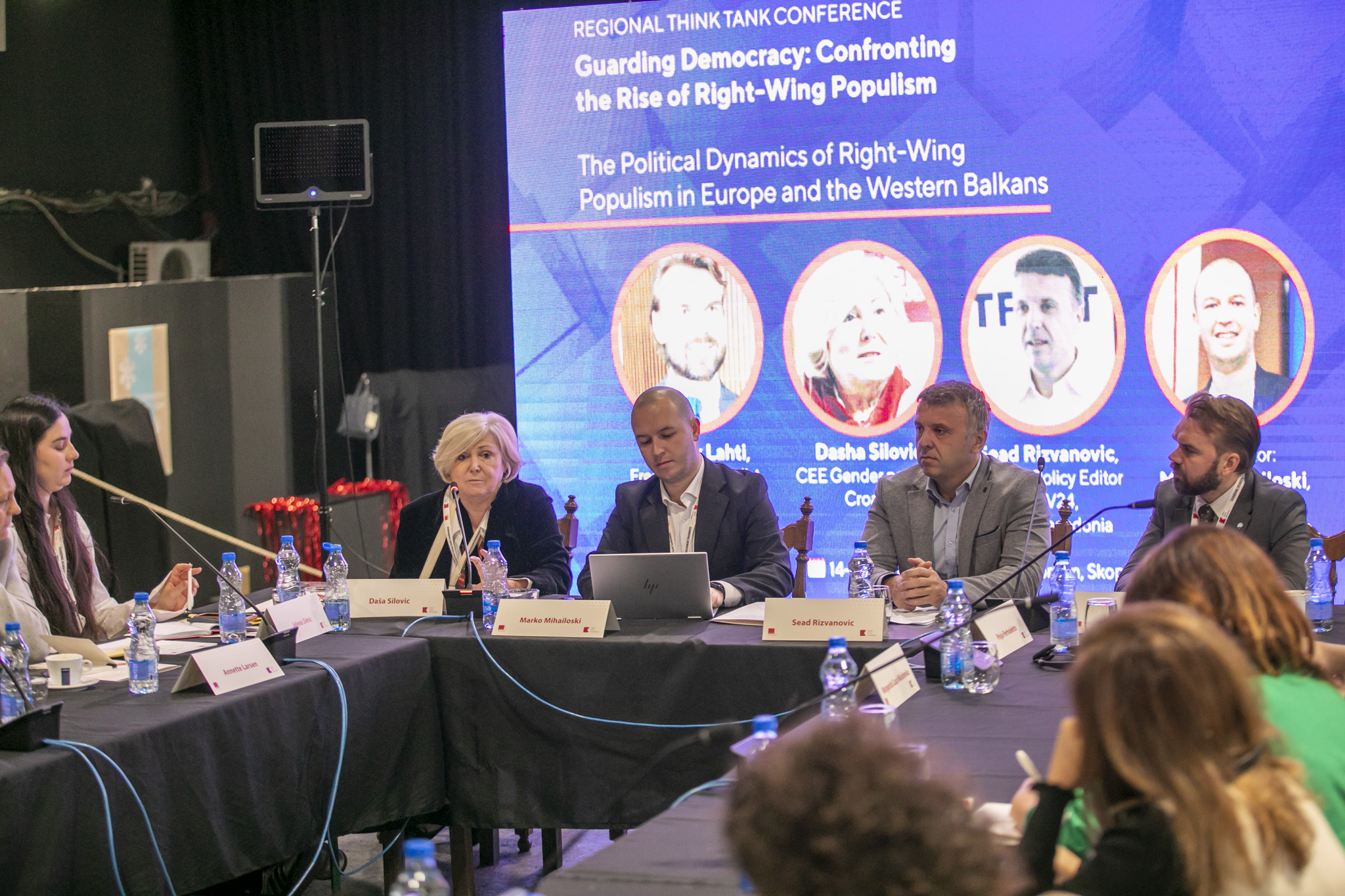
Presentation of Research on Sexual Harassment in the Workplace on International Day for the Elimination of Violence Against Women
Combating Sexual Harassment in the Workplace
H-Alter web about that event
Independent Trade Unions of Croatia (SSSH)Independent Trade Unions of Croatia (SSSH)
Celebrating Progress and Reflection
Korčula School 2024 and 30 Years of the CEE Gender Network
Dive into the rich history and impactful discussions of the Korčula School with our two featured videos.
Watch Now:
-
Report Summarizing Everything That Happened at School in Korčula 2024 - Explore the key highlights, debates, and research presented at this year’s event. Discover how social democracy is evolving, the relationship between Europe and the Western Balkans, and the critical issue of workplace sexual harassment through the TeamWork2 project. Gain insights into young people’s perspectives on politics and their involvement in social policies.
-
30 Years of the CEE Gender Network - A short film capturing the legacy and achievements of the CEE Gender Network over the past three decades. Witness the journey of this influential network and its role in promoting gender equality and social justice across Europe.
Join us in celebrating these milestones and envisioning a future of justice and equality. Click to watch and be inspired by the stories, discussions, and achievements that continue to shape our society. Let’s reflect on our progress and look forward to the future together!
Click on the photos on the right side to start watching:
First Photo: Report Summarizing Everything That Happened at School in Korčula 2024
Second Photo: Short Film - 30 Years of the CEE Gender Network
Successful Celebration of the 80th Anniversary of Korčula’s Liberation Supported by CEE Gender Network
Think Tank 2024 Korčula “School” 2024, support! CEE Gender Network stood firmly in support of the Anti-Fascists of Korčula.
Montenegrin choir Kic Pop Hor’s participation, whose repertoire was deemed offensive by local veterans’ associations, why?
Korčula, September 12, 2024 – The picturesque island of Korčula was abuzz with preparations for the grand celebration of the 80th anniversary of its liberation from fascism, set to take place this weekend. However, the event stirred controversy with the announcement of the Montenegrin choir Kic Pop Hor’s participation, whose repertoire was deemed offensive by local veterans’ associations.
Despite the tensions, the CEE Gender Network stood firmly in support of the Anti-Fascists of Korčula, highlighting the importance of commemorating this significant historical event. The network also brought attention to the recent desecration of anti-fascist monuments, a troubling act that marred the lead-up to the celebrations. Korčula’s Mayor, Nika Silić Maroević, expressed her dismay at the veterans’ opposition to anti-fascism, emphasizing that they should be united in this cause.
Kic Pop Hor, invited by the Anti-Fascists Association of Korčula, faced criticism from the veterans’ associations UHDDR Korčula and UHVDR Čara Korčula, who believed the choir’s performance would tarnish the island’s reputation. Krešimir Pecotić, President of UHDDR Korčula, deemed such participation unacceptable.
The event, however, proceeded successfully, showcasing the resilience and unity of the community in honoring their anti-fascist heritage. The CEE Gender Network’s involvement underscored the intersection of gender equality and historical remembrance, advocating for solidarity and the preservation of democratic values.
The celebration featured powerful performances and speeches, reaffirming the commitment to anti-fascist principles and the ongoing struggle for social justice. The presence of Kic Pop Hor added a poignant cultural dimension to the event, despite the initial controversies.
This successful commemoration not only honored the past but also highlighted the ongoing efforts to promote gender equality and social justice in the region. The CEE Gender Network remains dedicated to supporting such initiatives, ensuring that the legacy of anti-fascism continues to inspire future generations.
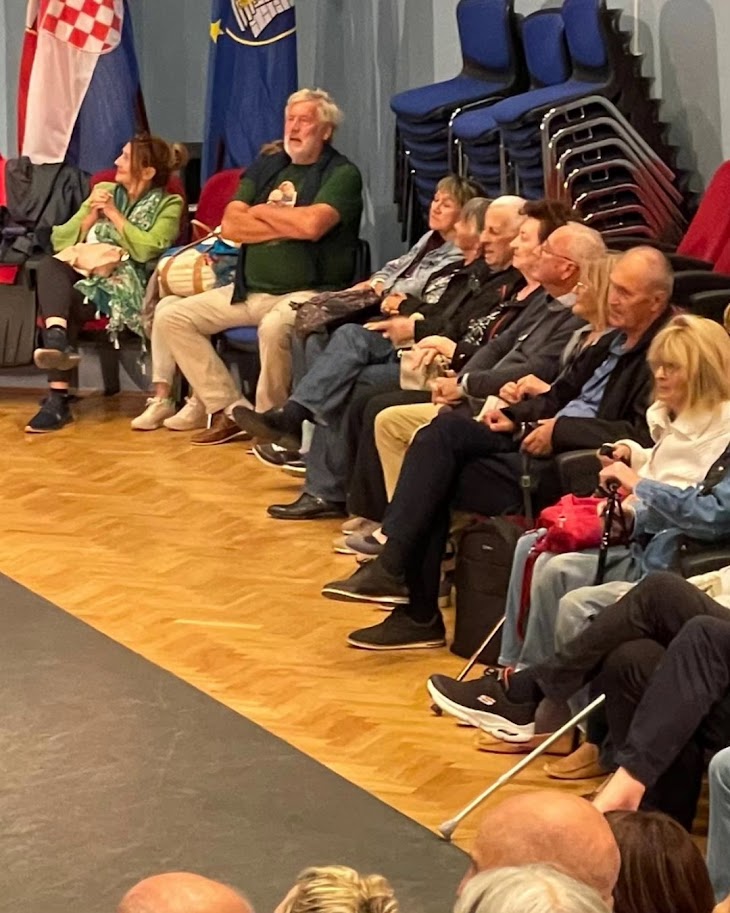
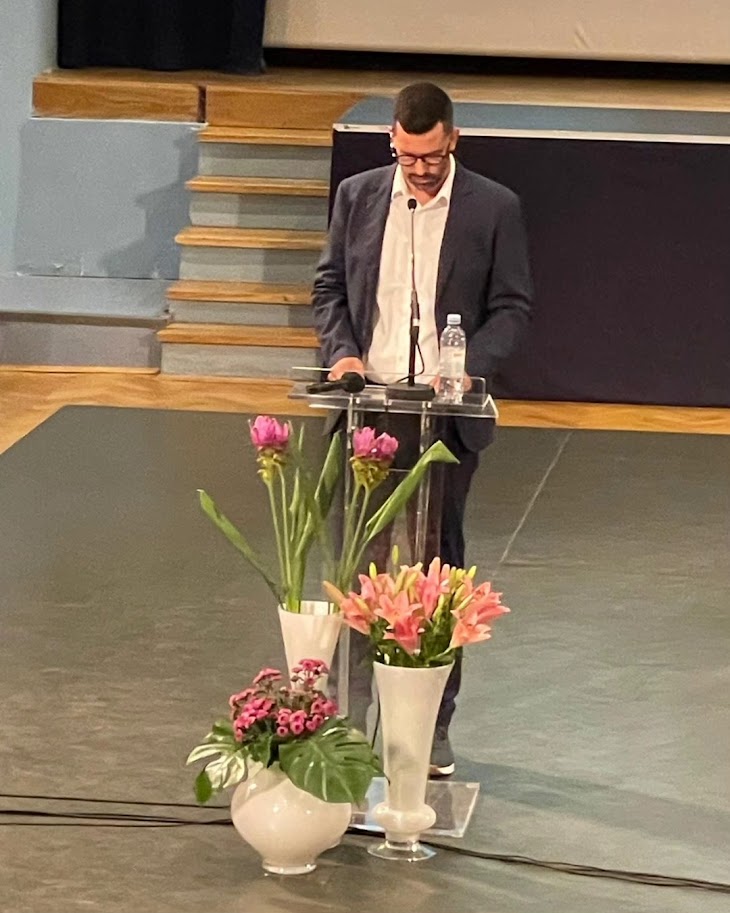
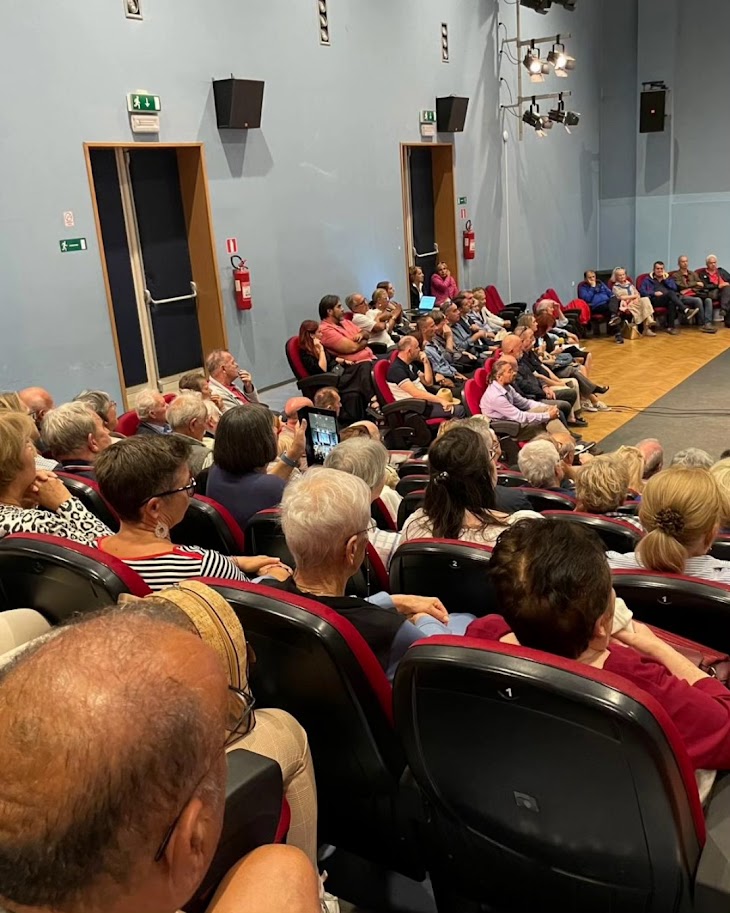
CEE Gender Network: 30 Years of Progress
Korčula School 2024: Advancing Gender Equality
Think Tank 2024 Korčula “School”: Conclusions and Recommendations
- 3rd September 2024
The Think Tank 2024 Korčula “School” has come to an end. It was a fast-paced event, and in just two days, many topics were discussed. Through the lens of gender politics, we learned a lot. It was particularly emphasized that it would be beneficial for left-wing parties to engage more on gender equality issues as a response to ideological attacks and the redefinition of the feminist agenda.
On the topic of gender equality from the perspective of population culture, the Ombudswomen for Gender Equality Višnja Ljubičić (Croatia) and Brankica Janković (Serbia) spoke. The session titled “Gender equality politics – addressing the ideological backlash and responding to the feminist agenda” was organized in collaboration with S-Kvinnor from Sweden. Key messages were conveyed by Tanja Fajon, Minister of Foreign and European Affairs of Slovenia and former president of SD, via video message. Introductory remarks were given by Andrasz Pulai, Strategy Director of Publicus Research from Hungary, Nina Űnesi, Secretary General of S-Kvinnor from Sweden, and Lola Milojević, expert from the CEE Gender Network.
The interactive discussion included participation from Sonja Lokar, former Executive Director of the CEE Gender Network via ZOOM, Martina Naumovska, Secretary General of SDSM from North Macedonia, Sonja Kovač, Vice President of PESW from SDP Croatia, Dragana Rašić Jovanović, President of WF from the Democratic Party of Serbia, and Lena Ag, founder and board member of the CEE Gender Network. The open discussion was moderated by Zita Gurmai, President of PESW, Member of Parliament in Hungary, and board member of the CEE Gender Network.
The concept of gender equality is under attack from right-wing political circles worldwide, including in the Eastern Balkans. The CEE Gender Network has addressed the issue of gender equality and gender integration many times through a comprehensive and multidisciplinary perspective, as well as the gradual political regression. Poland and Hungary lead in…
Additionally, the FES Youth Study Southeast Europe 2024 was presented by Emina Adilović, Senior Research Fellow at the Faculty of Political Science, University of Sarajevo. The discussion included Ana Pirtskhalava, Policy Advisor for PESW, and Jure Zubčić from SDP Croatia.
A positive social story, which no one believed in, was shared by Demir Mahmutćehajić from Stolac. A group of enthusiasts from this town in Herzegovina decided to collect and sort all the waste so that the useful waste could be used to buy food, fuel, and medicine.
“We collected 100,000 pieces of packaging, plastic bottles, cans, and jars. Then we organized the transport of several companies to transfer this packaging from Stolac to Sarajevo. We did everything clearly, loudly, and transparently, we recorded everything,” said Mahmutćehajić, a human rights activist from Stolac, who came to Korčula to share this socially inspiring story. His family and people around them help him in implementing this initiative.
“In these three months, we distributed 18,000 marks from the bottles and plastic. There is no big philosophy and politics, except that we want to do what the system won’t, which is to connect social needs with ecological ones,” he said.
Despite this, the path of Western Balkan countries towards the EU remains slow and full of obstacles. When discussing enlargement, the aspect of social changes that the accession process should bring to candidate countries is often overlooked. Preparation for EU membership should not only be economic and institutional adaptation. Citizens should benefit from the reforms implemented in member states. However, what they are currently experiencing is democratic regression, mass emigration, and increased inequalities.
In the sessions, discussions were held on how to ensure that the process results, in accordance with the European Pillar of Social Rights, in strengthening social rights, solidarity and protection, inclusive labor markets and economic growth, and empowering the citizens of the Western Balkans. The discussion included Mirna Jusić from Bosnia and Herzegovina (Faculty of Political Science), Ledjon Shahini from Albania (Executive Director of the Qemal Stafa Foundation), and Tamara Trpić from Serbia (board member of the CEE Gender Network).
This workshop was organized in collaboration with the Max van den Stoel Foundation, moderated by the foundation’s director Kido Koenig. The project receives financial support from the European Parliament but does not represent the views of the European Parliament.
Finally, Daša Šašović Šilović, President of the CEE Gender Network, thanked everyone for their participation, especially highlighting Lovorka Marinović, the long-time leader and organizer of the school in Korčula. Thanks to her effort and dedication, this event has achieved significant visibility. Representatives from the Olaf Palme International Center from Sweden also joined in the thanks.
The conclusion of the school is that there is a need for further gatherings and the continuation of the long tradition of free leftist thought, which requires support and redefinition in the context of current political changes. These changes, which include the revision and suppression of Europe’s anti-fascist legacy, emphasize the importance of joint action by left-wing social democratic parties. Preparations for next year in Korčula have already begun.
CEE Gender Network – 30 years of empowering women and promoting gender equality.

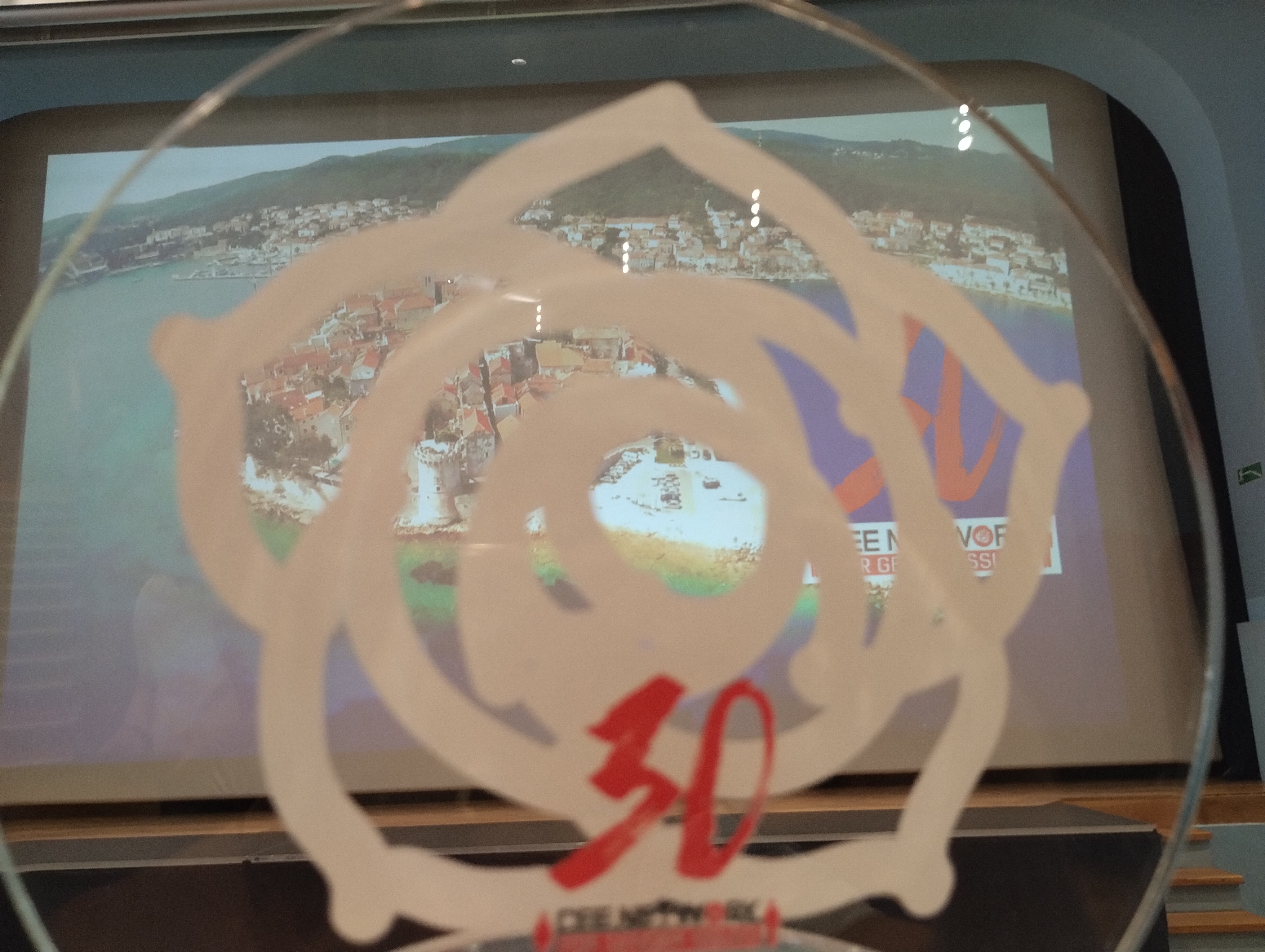
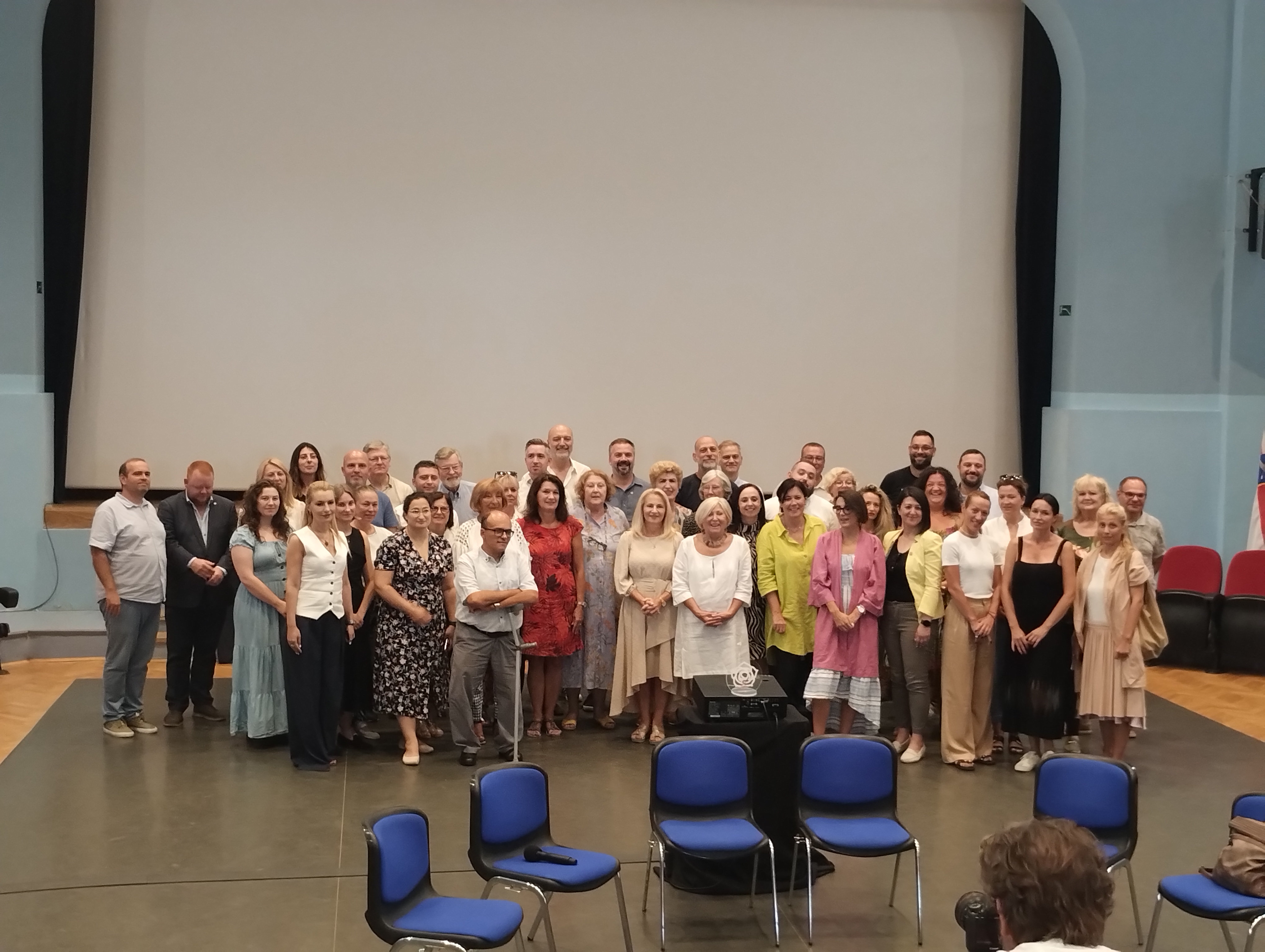
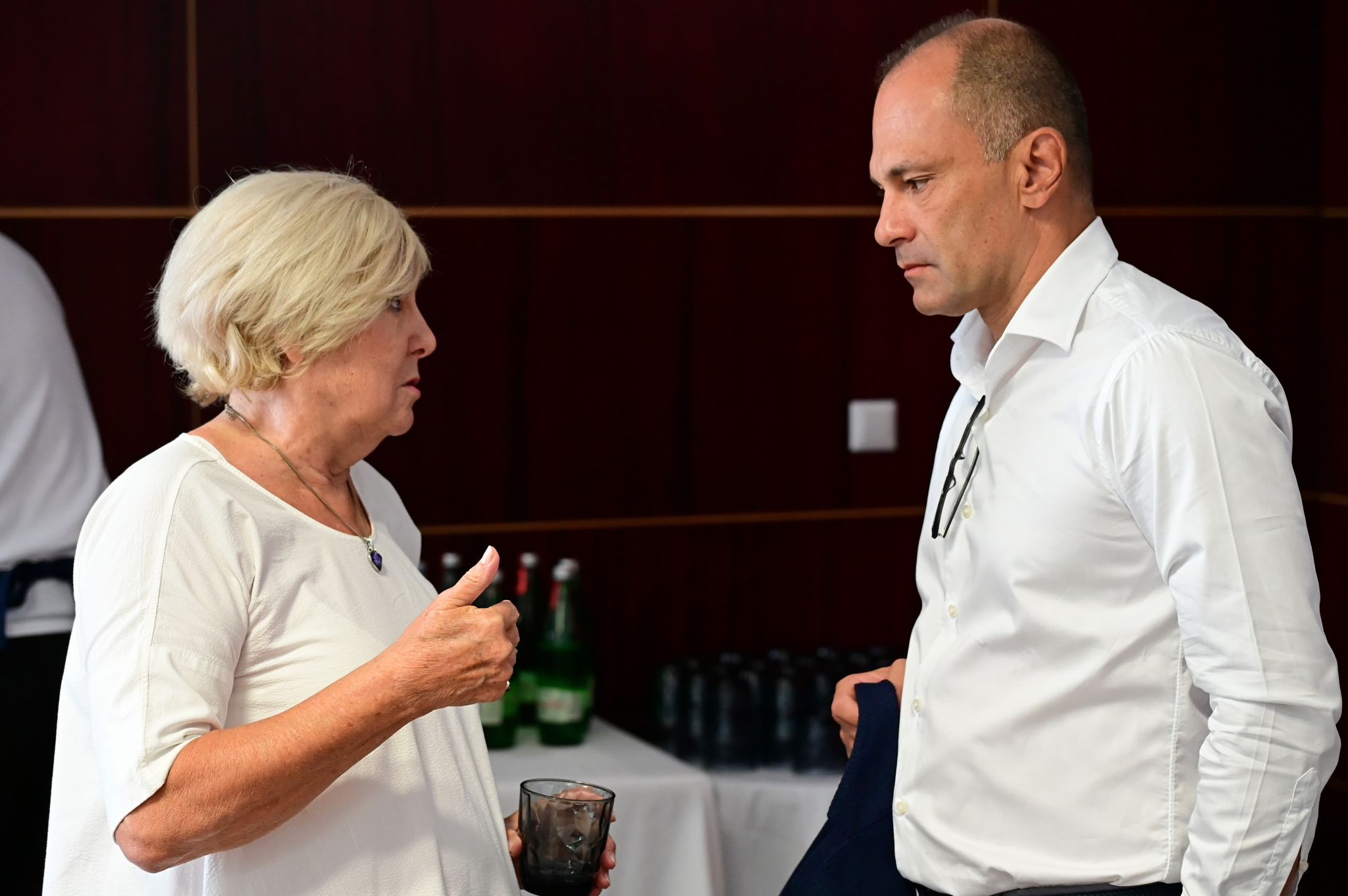
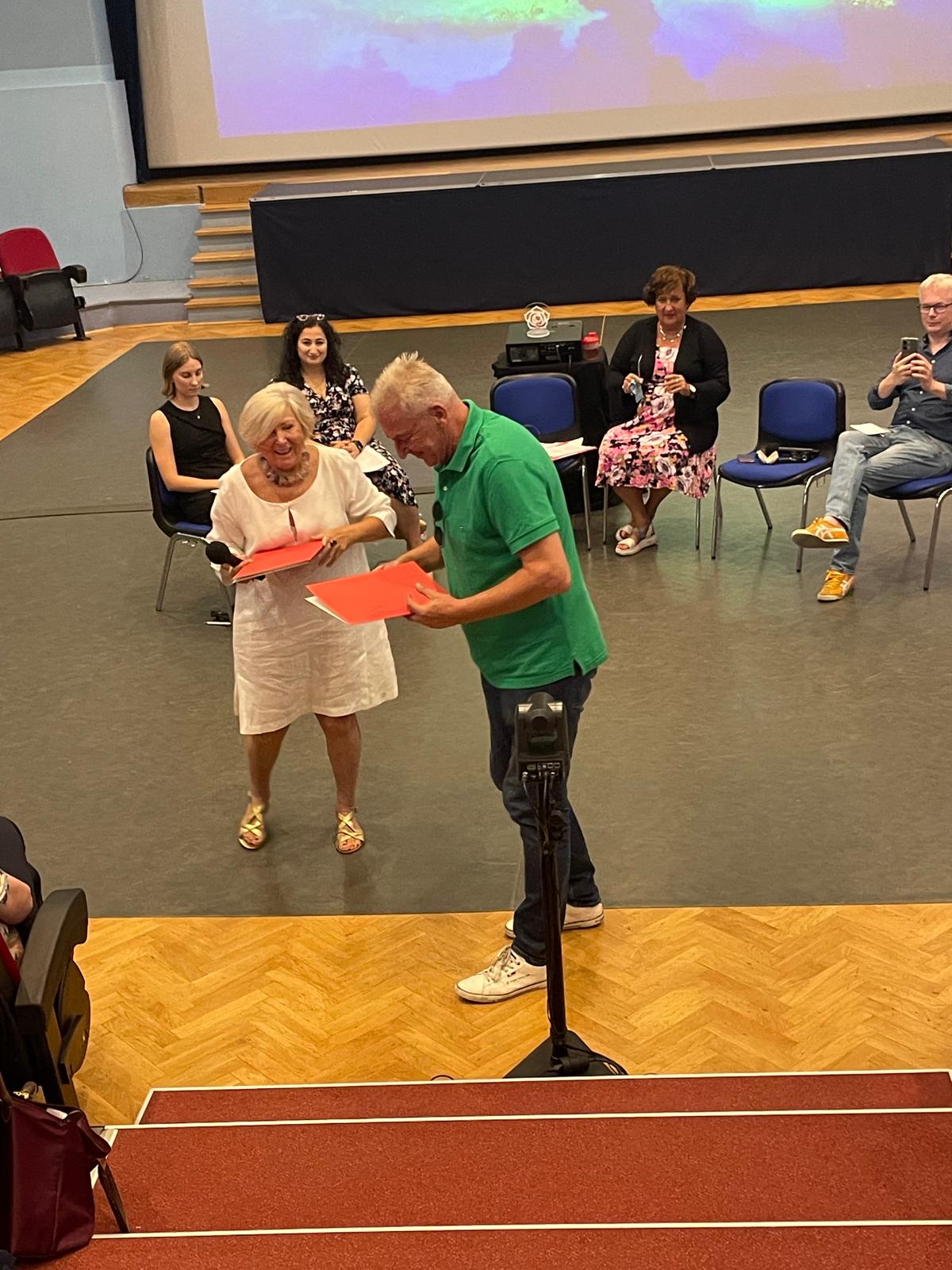
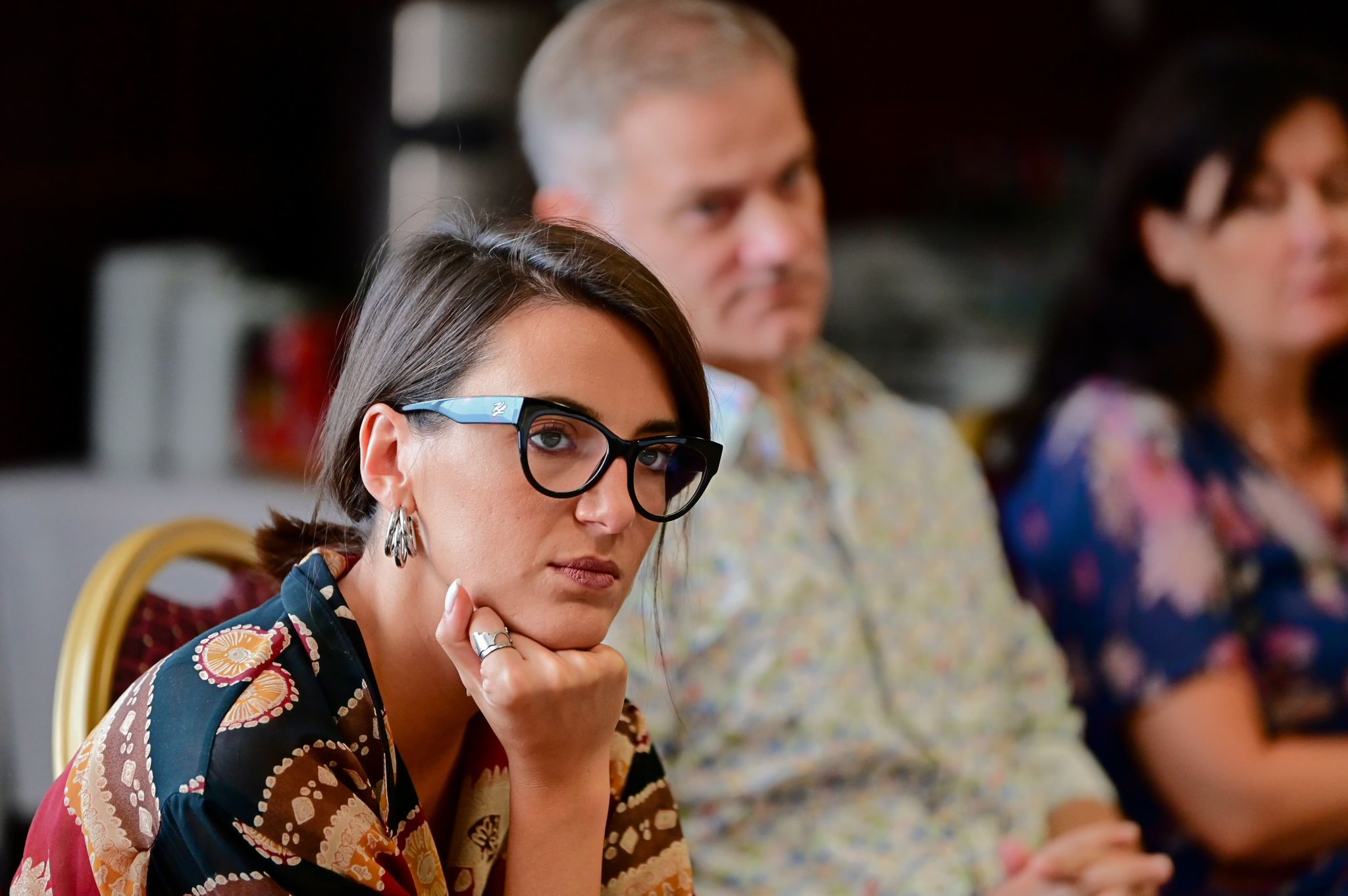
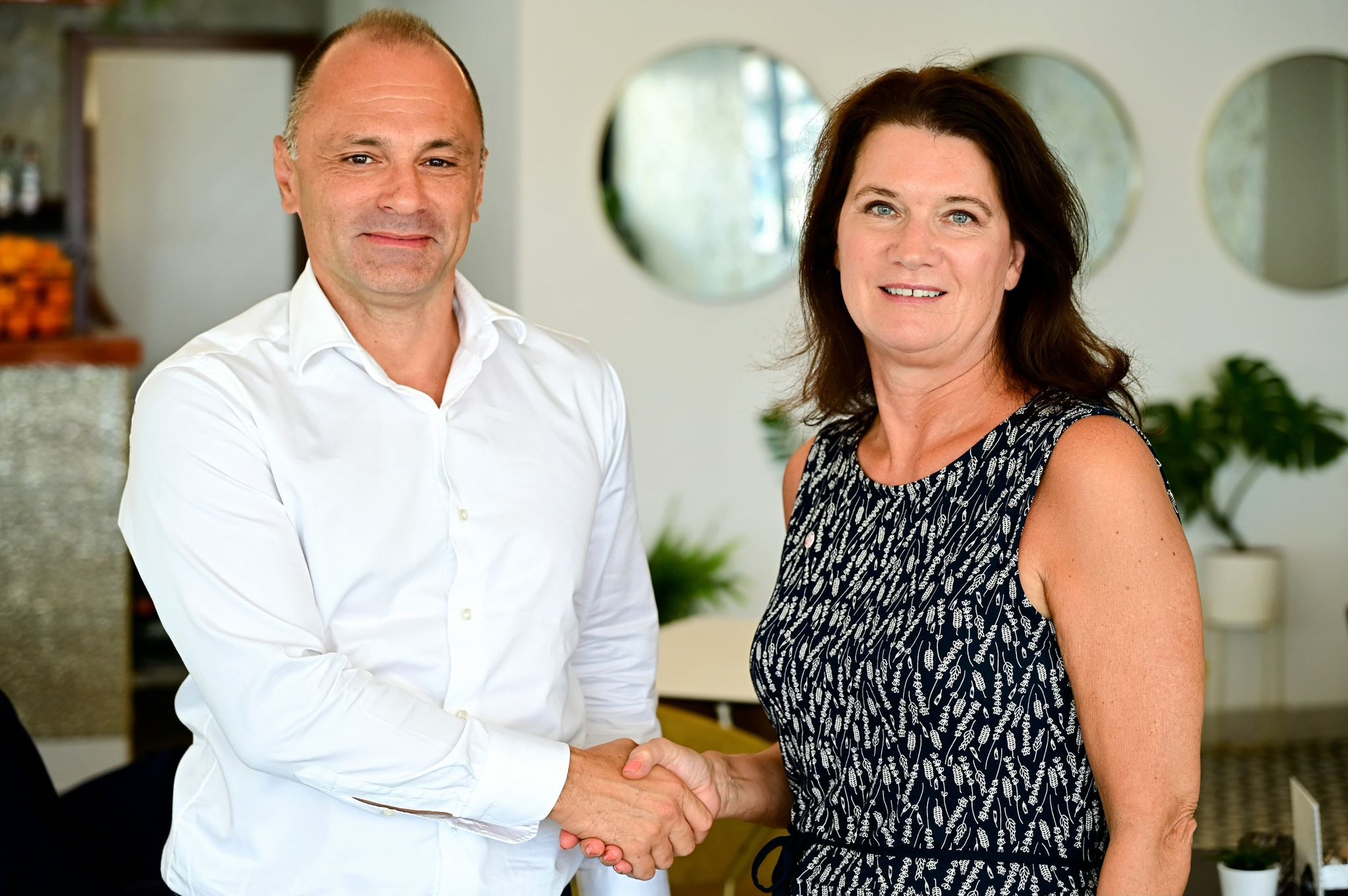
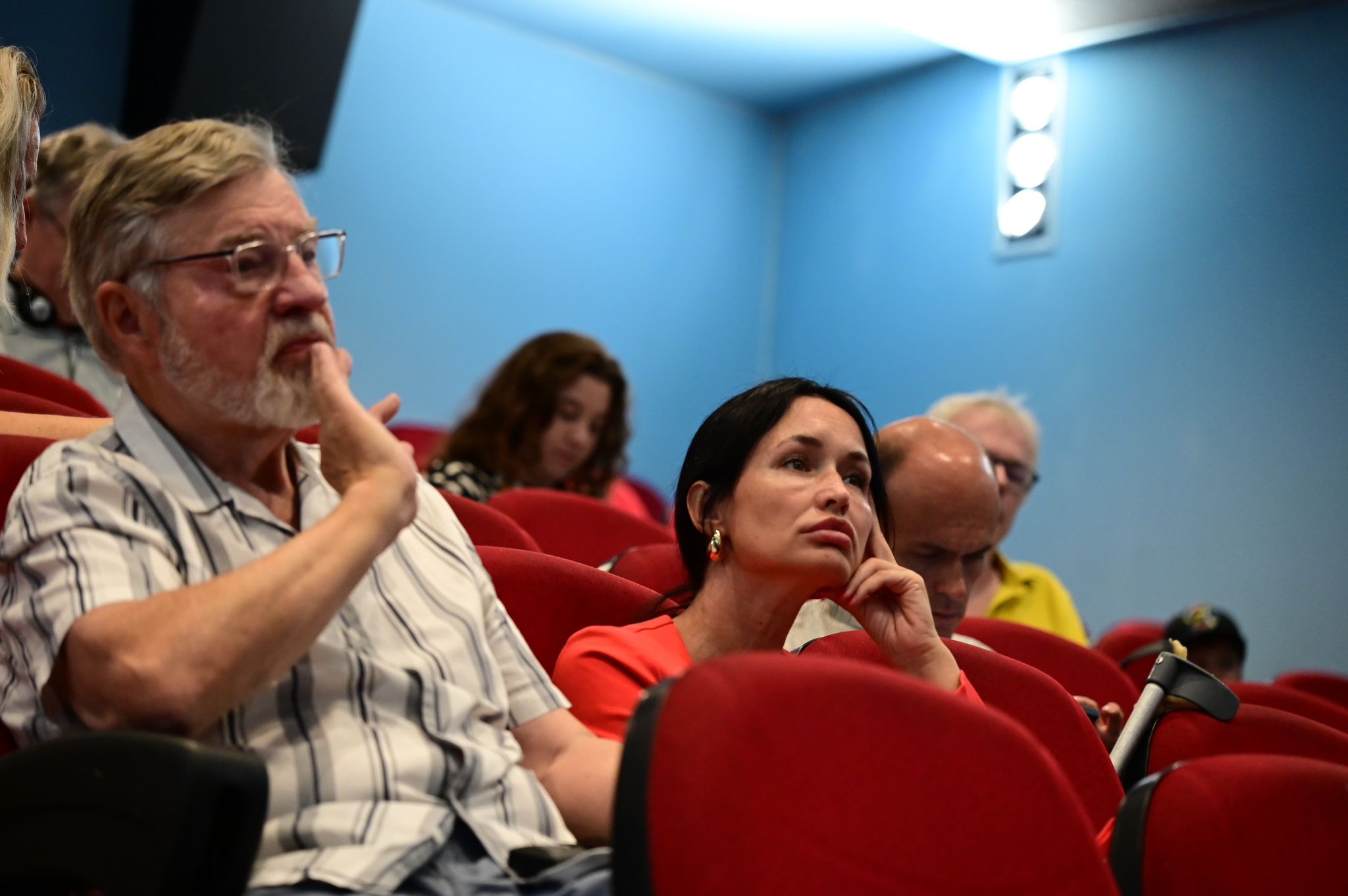
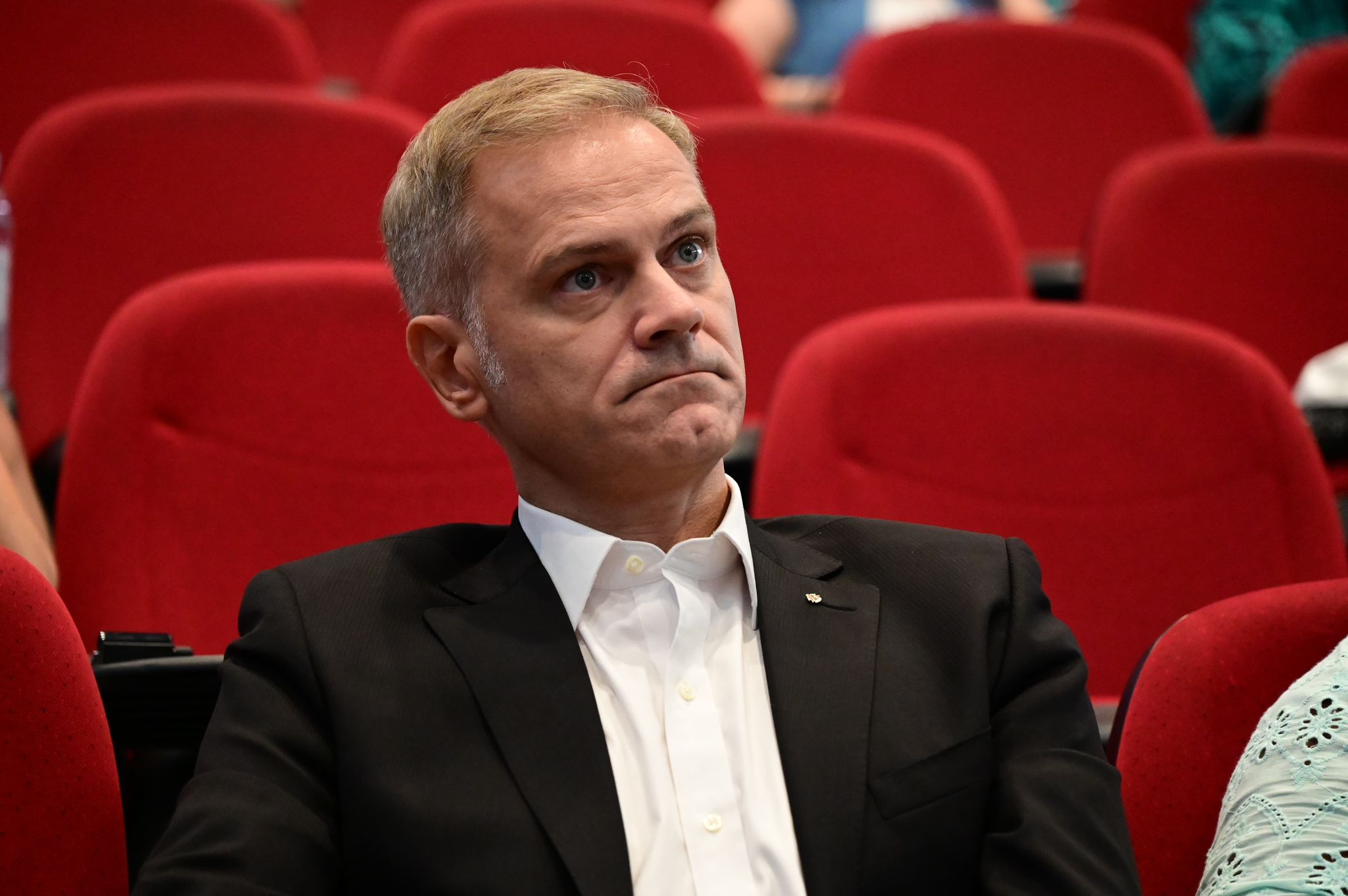
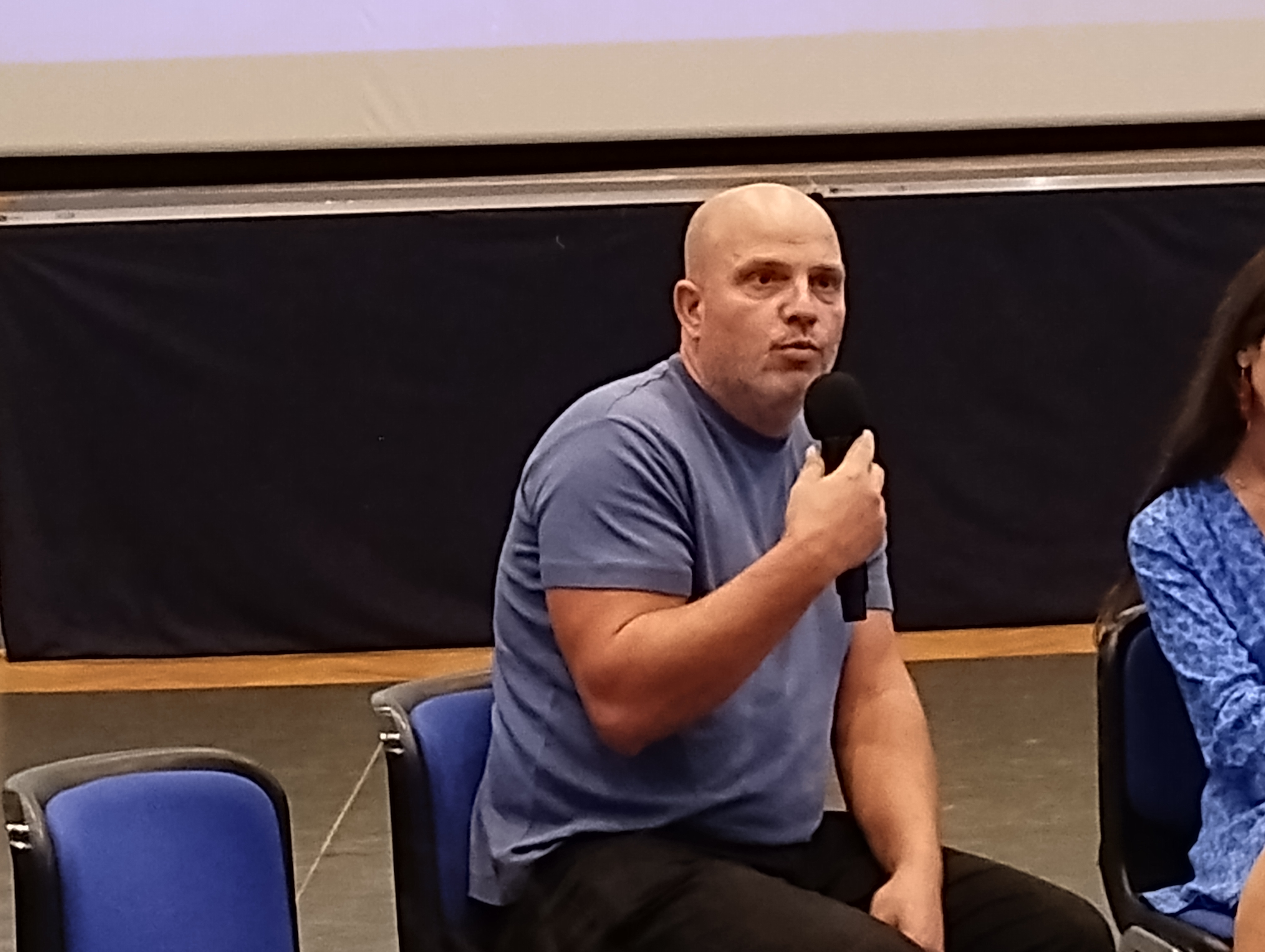
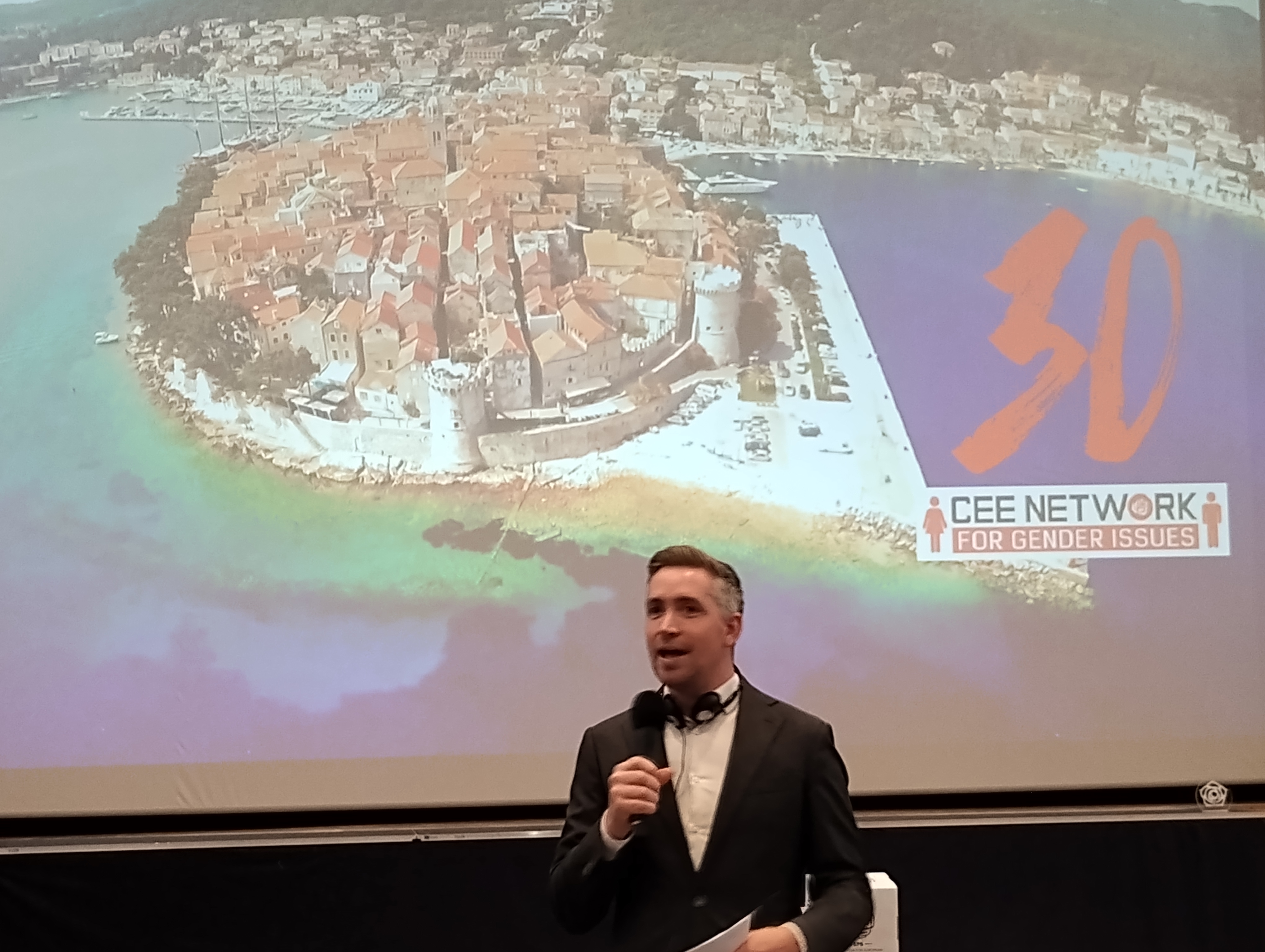
Korčula Think Tank: Shaping the Future of Leftist Politics
Korčula’s Intellectual Hub: Exploring Socialism and Equality
Vandalism in Korčula: Monument to Fallen Fighters in Račišće Defaced
Korčula, August 31, 2024 – Last night, a vandalistic act deeply shook the local community in Korčula. Ivan Botica, President of the Association of Anti-Fascist Fighters and Anti-Fascists of Korčula, stated to the CEE Network for Gender Issues, an organization advocating for anti-fascist heritage and human rights:
“The monument to the fallen fighters in the National Liberation War and the victims of fascism in Račišće has been defaced. The incident occurred just before the promotion of a major work on the destruction and demolition of partisan monuments and ahead of the program celebrating the 80th anniversary of the liberation of Korčula from fascism. The timing and intent of the perpetrator are clear, but this is by no means an isolated incident. The cause and perpetrator are already known. It is the socio-economic system we live in and a thirty-year war against historical facts, collective memory, and emotions towards the National Liberation War and its legacy. A fragmented and destroyed society and an educational system that fails daily are guarantees of the vitality of fascism, and for us, an incentive for daily struggle. Only through uncompromising struggle for human rights, equality, and tolerance – for the values won in the NOB – can we expect change.”
The “grave” of an unknown number of Račišćani, victims of fascism, was doused in black paint. In the year marking the 80th anniversary of the liberation of Korčula from fascism, and the year we proudly promote Ante Lešaja’s book on the destruction of NOB’s monumental heritage, an unknown perpetrator defaced the ossuary monument in Račišće and the relief by Petar Palaviccini, a sculptor of Italian origin born in Korčula.
Committee Meeting and School in Korčula
On August 29 and 30, a committee meeting was held in Korčula to consolidate guidelines for this year’s school in Korčula. The first sessions opened many questions about socialism among young people, their perception of politics, and weak engagement. The importance of digitalization, which will bring access to knowledge and information, and the way leftist politics are perceived in society were also mentioned. It was emphasized that leftist politics are threatened by right-wing populism and that leftist parties lack more women in positions of power.
Before the first session began, we remembered the late Fred Matić, a Member of the European Parliament and politician who left a great legacy in the fight for women’s human rights and gender equality. The President of the Republic of Croatia, Zoran Milanović, also gave his greetings and support to the school and the topics concerning the development of politics through a gender lens. Engaged and passionate discussions were opened by speakers present in person, such as Borko Stefanović, a member of parliament and deputy president of the Freedom and Justice Party from Serbia, and those who participated online, such as the Mayor of Tirana Erion Veliaj and Venko Filipče, president of the SDSM from North Macedonia. Among the speakers were also Maria João Rodrigues, president of FEPS, Pia Locatelli, international secretary of PSI from Italy and member of the CEE Gender Network Board, Daša Šašović Šilović, president of the CEE Gender Network and European Partners for the Environment, and Zita Gurmai, president of PESW and member of the Hungarian parliament.
Last Day of School in Korčula
Today, August 31, marks the second and final day of the school in Korčula, which began thirty years ago here on the island. Yesterday, a film by Josip Visković was shown, taking us through the history of the school and presenting all the figures and actors – leftist thinkers, intellectuals, and artists who left their mark. Today, the focus will be on gender equality, the lifeblood of leftist politics. Discussions will cover feminism, gender equality, popular culture, and the day will close with the burning issue of “sexual harassment in the workplace,” which predominantly affects women and occurs due to unstable economic policies and labor rights concerning precarious work, especially in the film industry and media. The case of Dalibor Matanić, a director who sexually harassed colleagues from a position of power, will be discussed. Today’s speakers include Višnja Ljubičić, Ombudswoman for Gender Equality, and Brankica Janković, Commissioner for Equality from Serbia. The school concludes today at 5:30 PM.
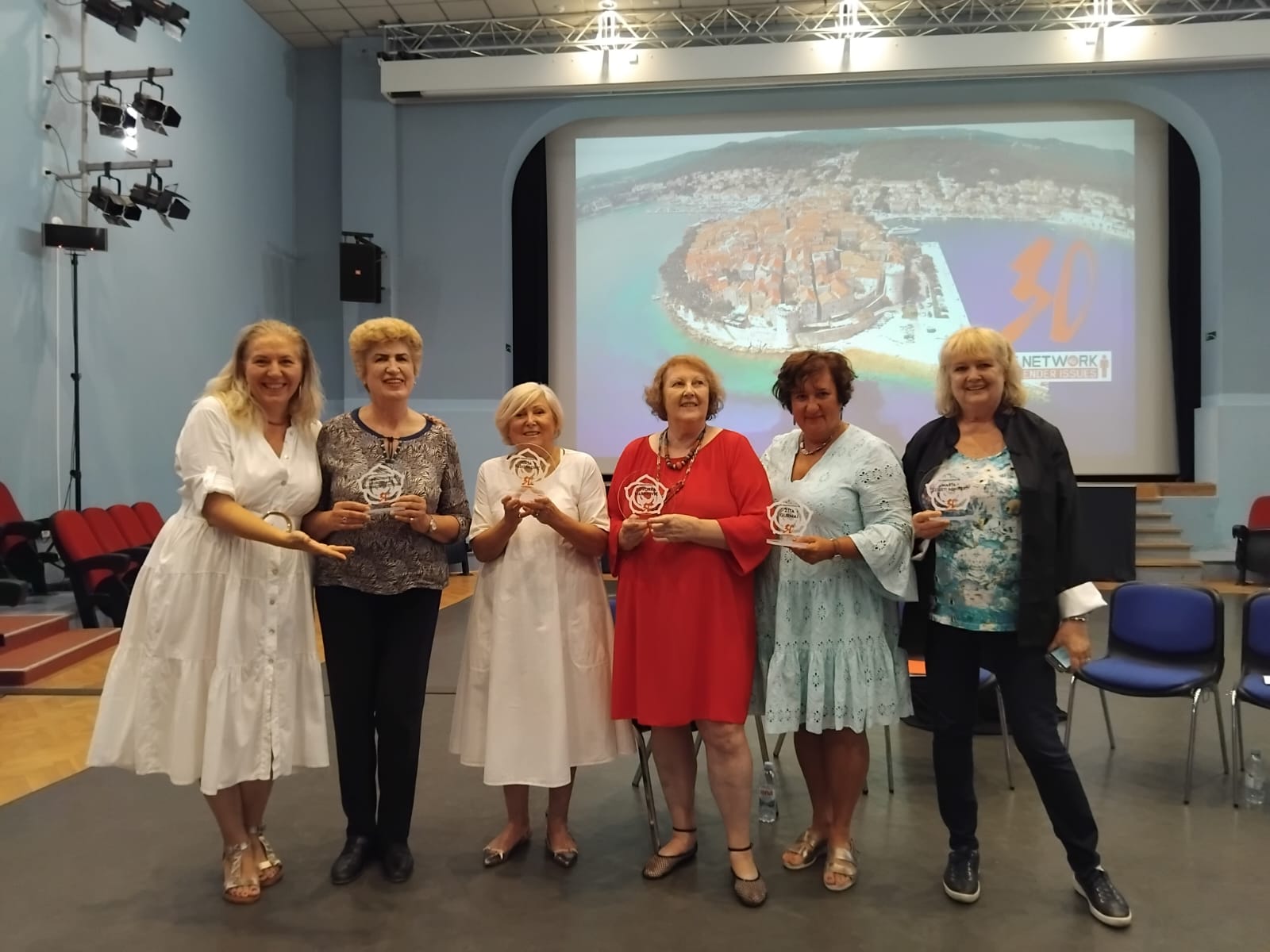
2024 KORČULA “SCHOOL” THINK TANK
– Transforming Politics through a Gender Lens-
P R O G R A M M E
Korčula School: 13 Years of Success and Impact
August 25th 2024
Korčula School enters its thirteenth year with remarkable resonance in European social democratic circles. This year, the CEE Gender Network celebrates its 30th anniversary, a significant achievement considering the NGO scene in the region.
The Central and Eastern European Gender Network (CEE Gender Network) marks 30 years of existence. Founded in 1994 within the framework of the European Forum for Democracy and Solidarity, the network brings together women’s organizations, foundations, and groups from social democratic, left-wing, and progressive political parties and civil society organizations in Central Europe, especially in the Western Balkans.
The network’s mission remains unchanged: to promote the empowerment of women and integrate gender equality goals into the main strategies, policies, and programs of left-centrist, progressive, and social democratic political parties.
In 2024, alongside the 30th anniversary celebration, the thirteenth anniversary of the leading think-tank of the CEE Gender Network - “Korčula School – Transforming Politics through the Lens of Gender” will be held on August 30th and 31st at the Korčula Cultural Center, in the city of Korčula.
Korčula School is a unique political and ideological space for free thinking and dialogue on key ideological and political issues, with an emphasis on gender equality. The CEE Gender Network is an associate member of the Party of European Socialists (PES), a member of the Women of the Party of European Socialists (PESW), an observer member of the Foundation for European Progressive Studies (FEPS), and a strategic partner of SOLIDAR. It is also an EU ambassador for the European Pillar of Social Rights.
As part of this anniversary celebration, a rich program with more than 75 participants has been prepared. The focus will be on issues of social democracy and political movements in the region, the “backsliding” and attacks on the concept of gender equality by the political right, and particularly on issues of population policy and sexual harassment in the workplace.
Don’t miss the opportunity to be part of this significant event that shapes the future of gender equality and social democratic values in the region!
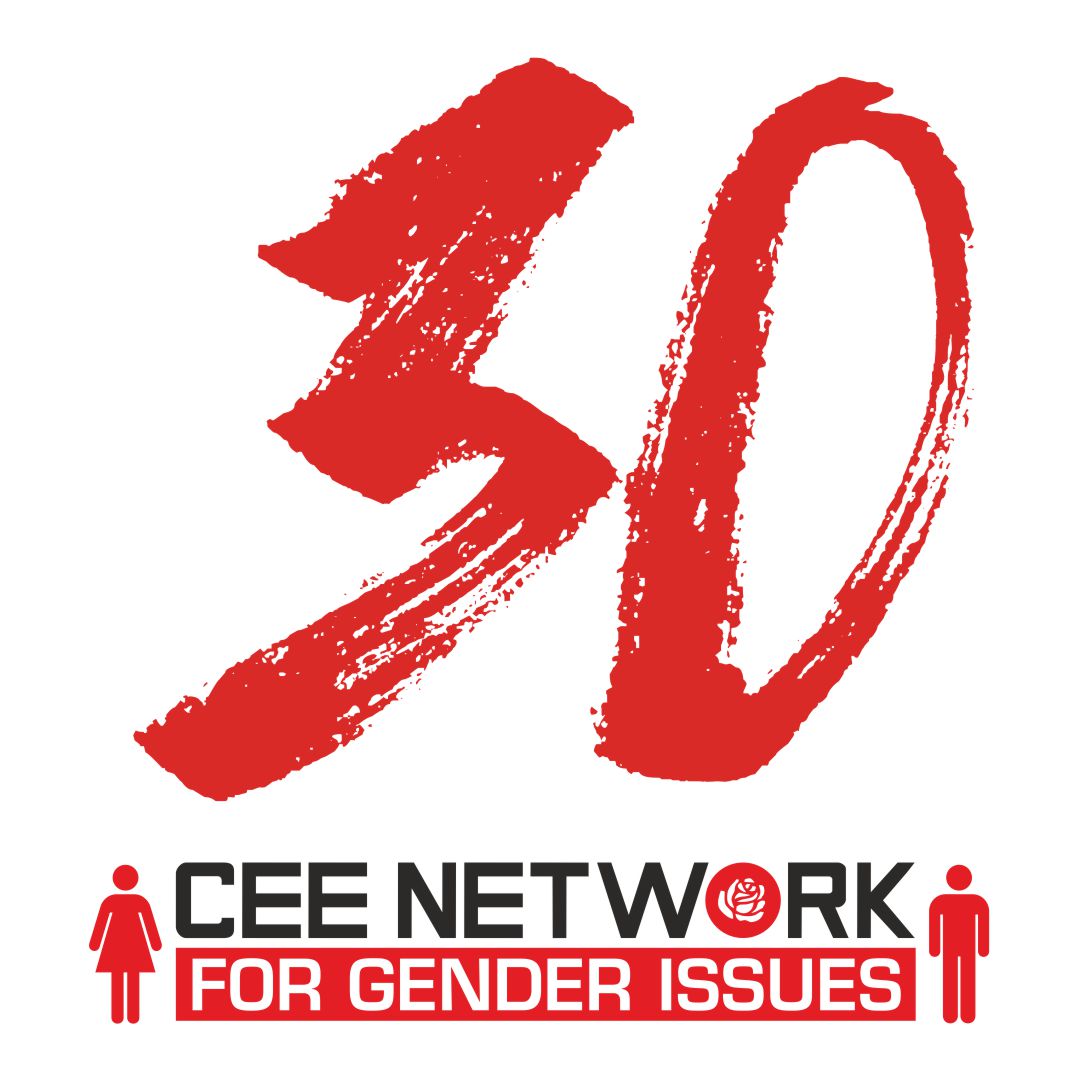
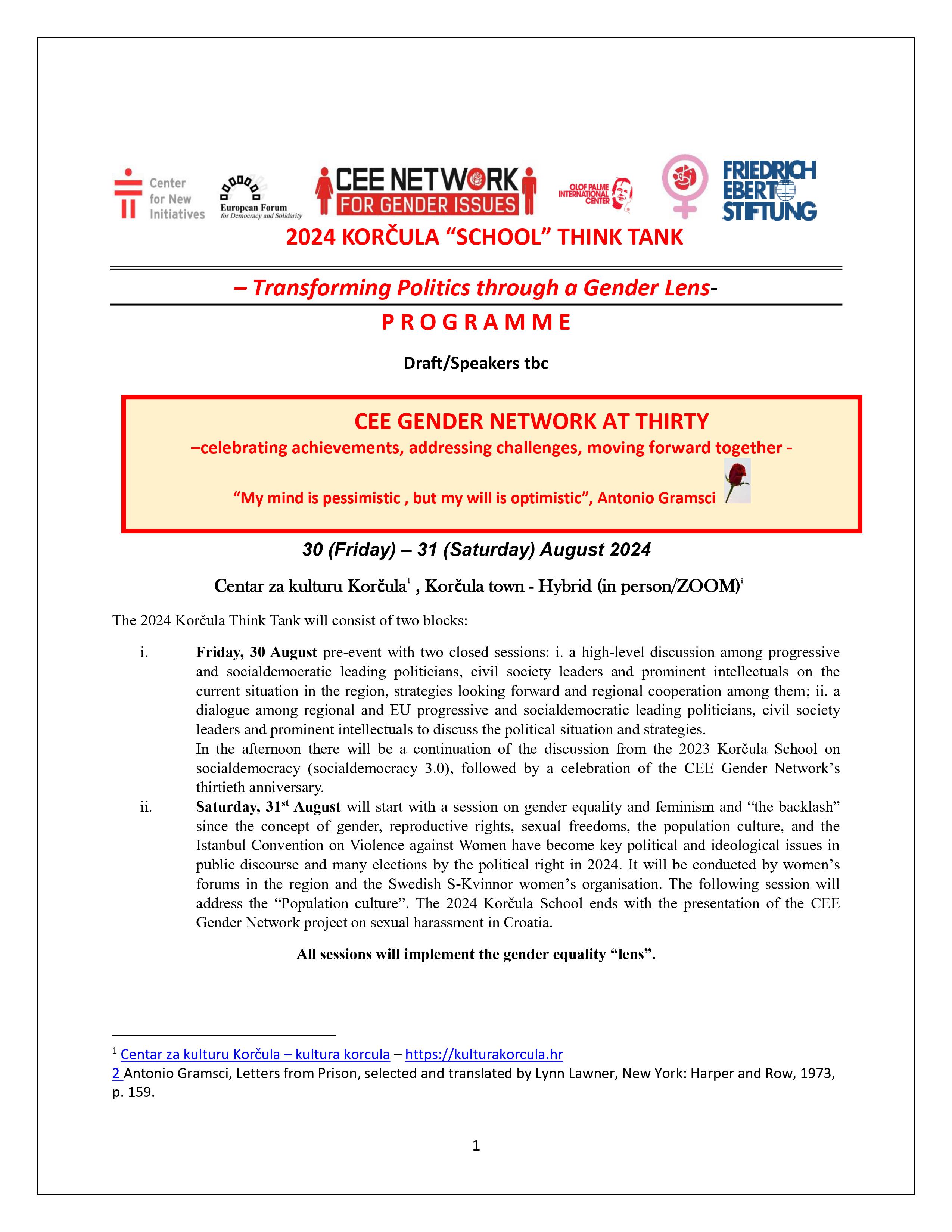
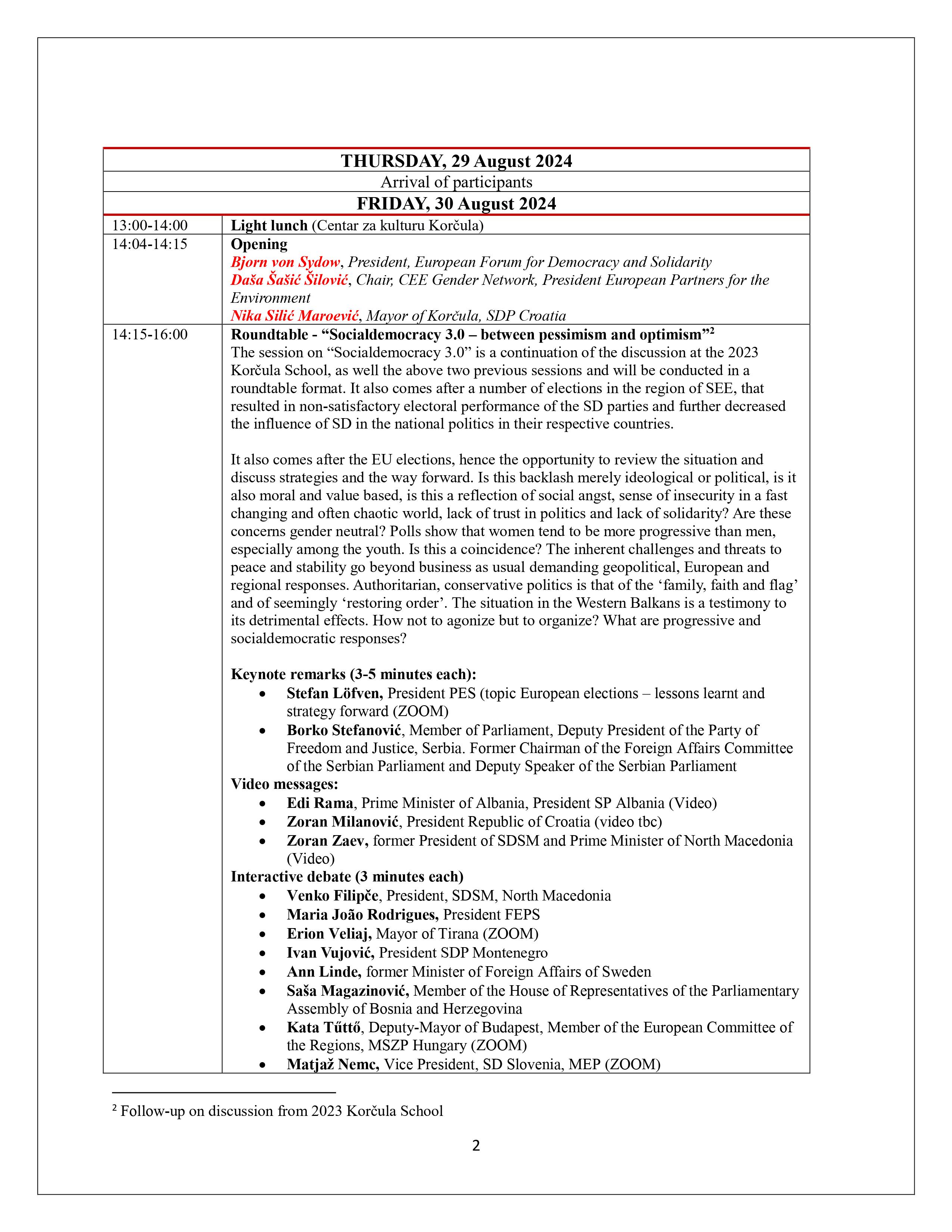
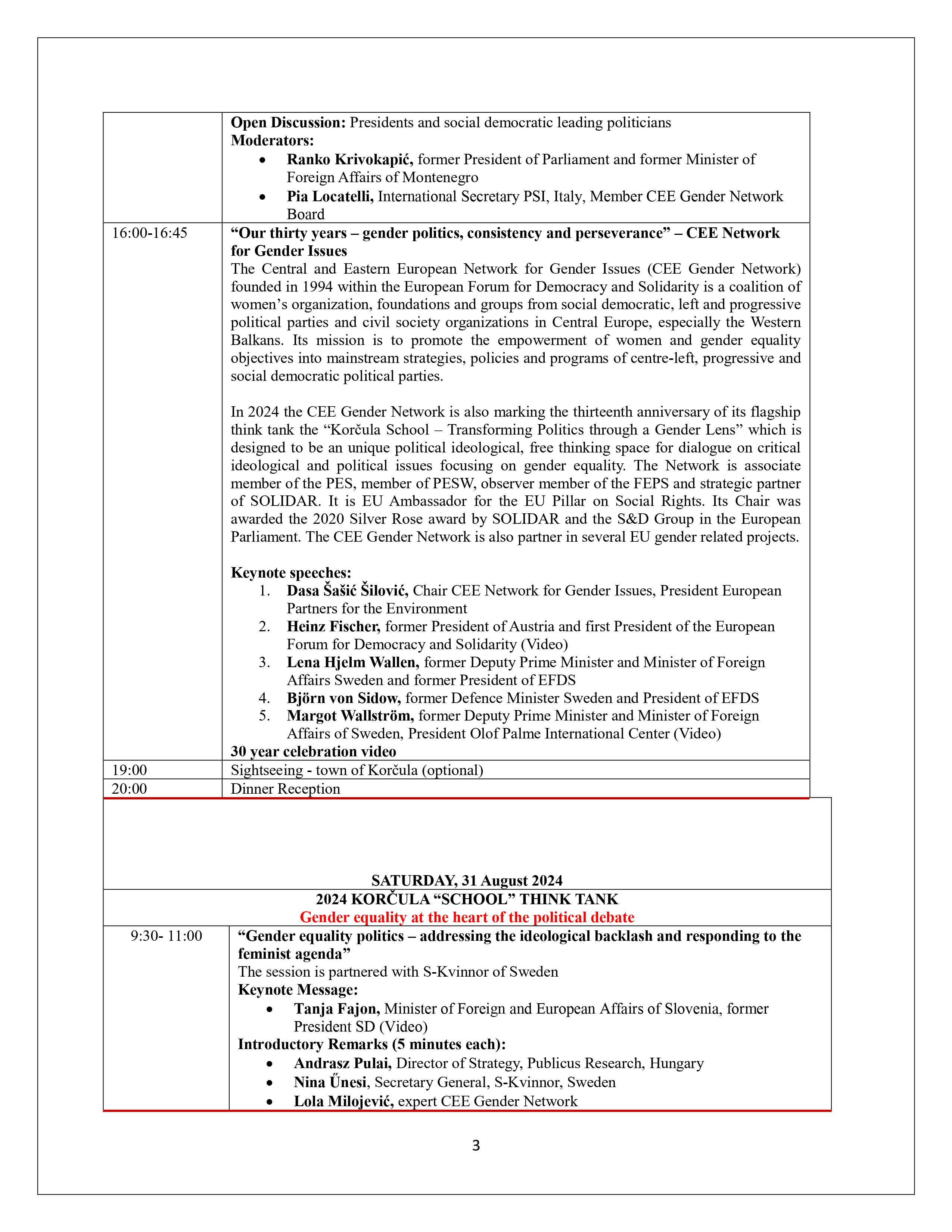
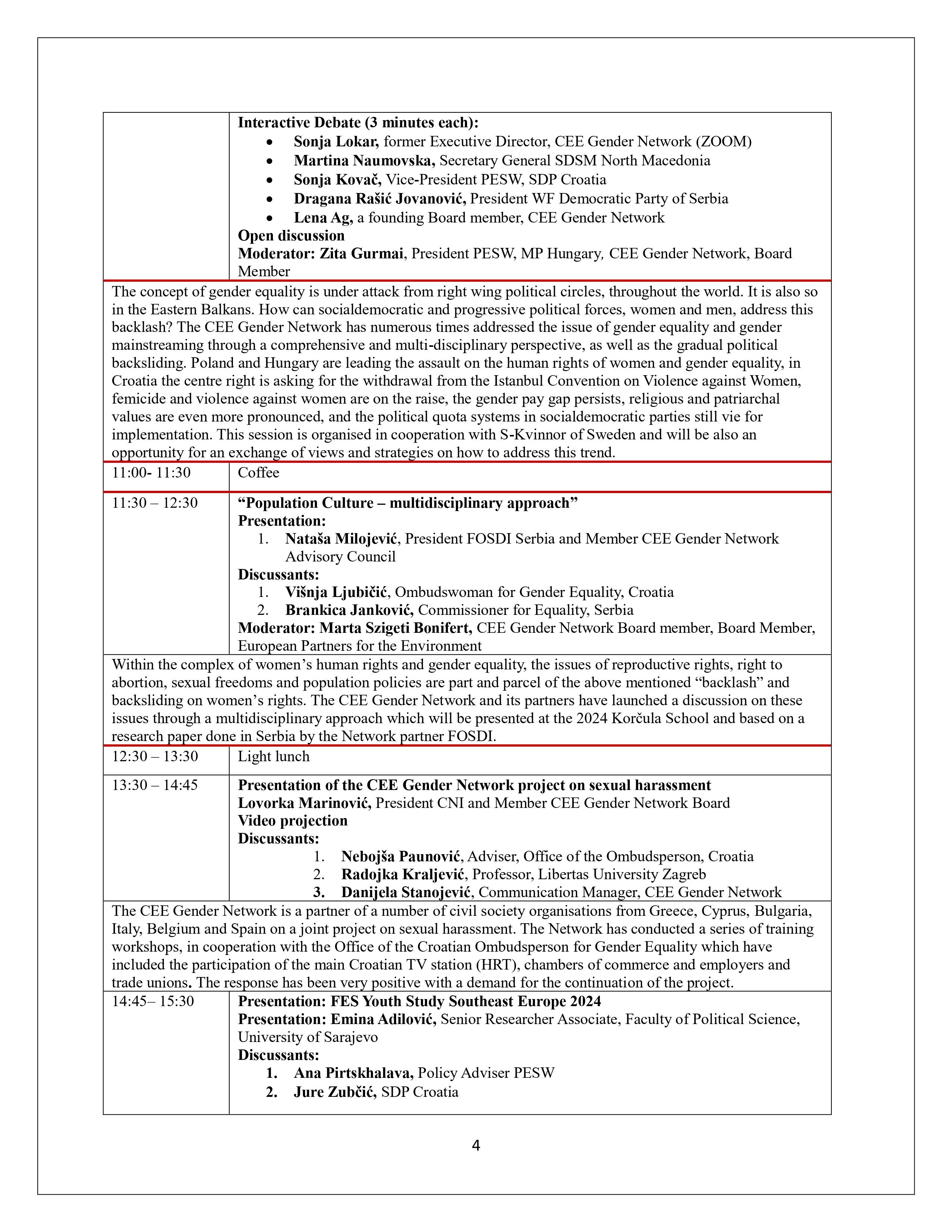
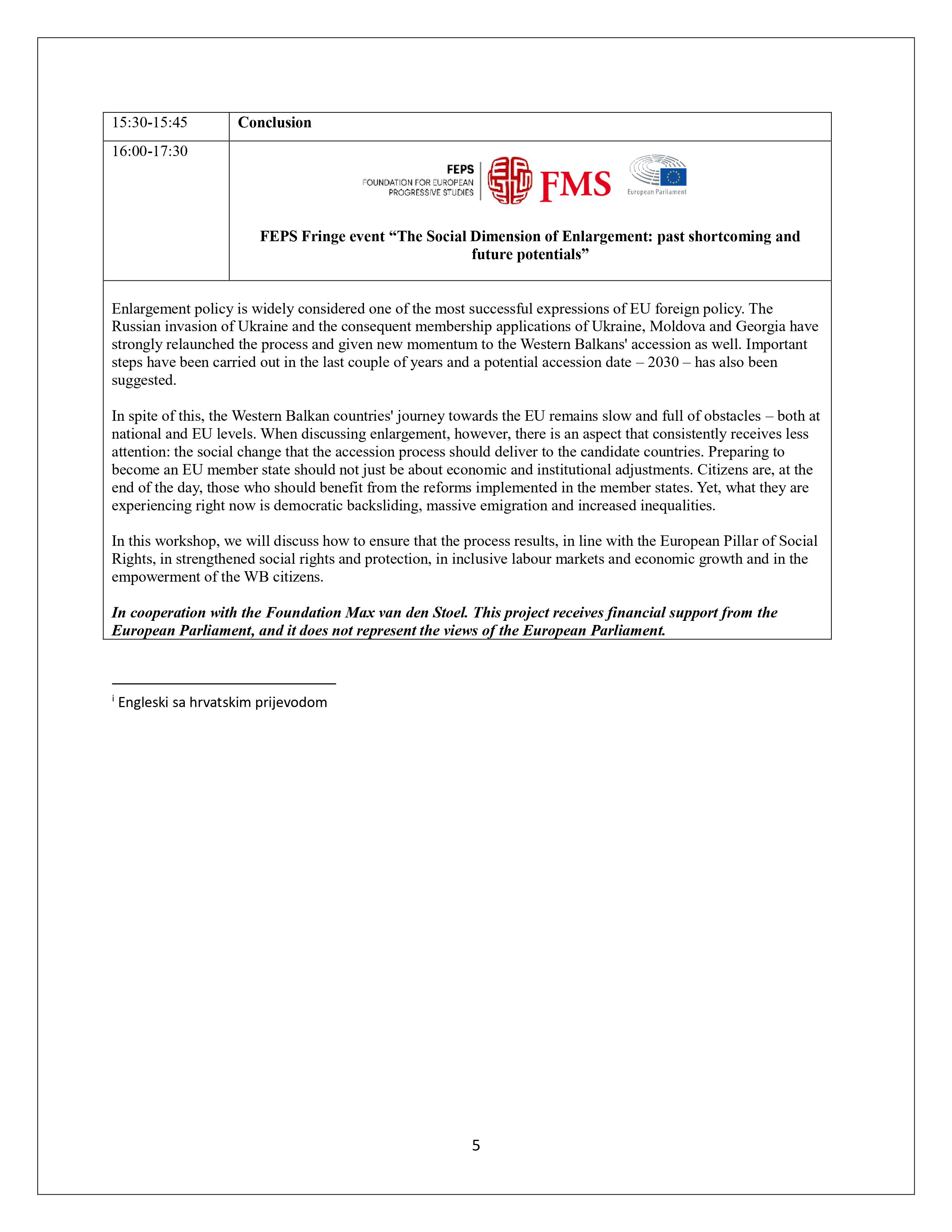
Predrag Fred Matić: A Champion of Equality and Human Rights
Honoring a Visionary: Predrag Fred Matić’s Legacy
August 24th 2024
CEE Gender Network bids farewell to Predrag Fred Matić, an exceptional humanist and a man who fought for his convictions. He was a true defender and patriot, serving as the Minister of Veterans’ Affairs and representing the Social Democratic Party (SDP) in the European Parliament.
After the war, he dedicated himself to advocating for human rights, women’s rights, and equality. In the European Parliament, he was elected Vice President of the Committee on Women’s Rights and Gender Equality.
Fred himself was a victim of violence during the war, and he famously said, “In the camps, they may control our bodies, but they cannot take away our souls. I refuse to surrender my pride.” Thanks to his efforts as Minister of Veterans’ Affairs, a law was passed to compensate victims of sexual violence during the Homeland War.
He passionately championed gender equality and women’s rights in the European Parliament. He firmly believed that everyone should have access to healthcare services, including contraception, assisted reproduction, and abortion. Despite fierce opposition from conservatives and the church, his report on sexual and reproductive rights was adopted by the European Parliament on June 24, 2021. He proudly emphasized that nearly 230 million women in Europe gained their rights. For his work, he received the Human Rights Award in the European Parliament – the European Oscar.
In November of last year, he advocated for the implementation of the new European Directive on combating violence against women, which stalled in including rape as a criminal offense under EU law.
Through his actions, Fred showed us the path to persistently pursue his vision – making our country a place of complete equality.
With gratitude, CEE Gender Network…
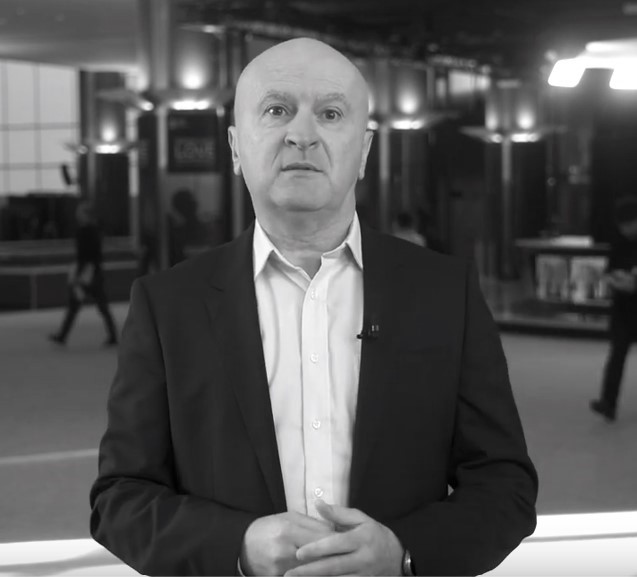
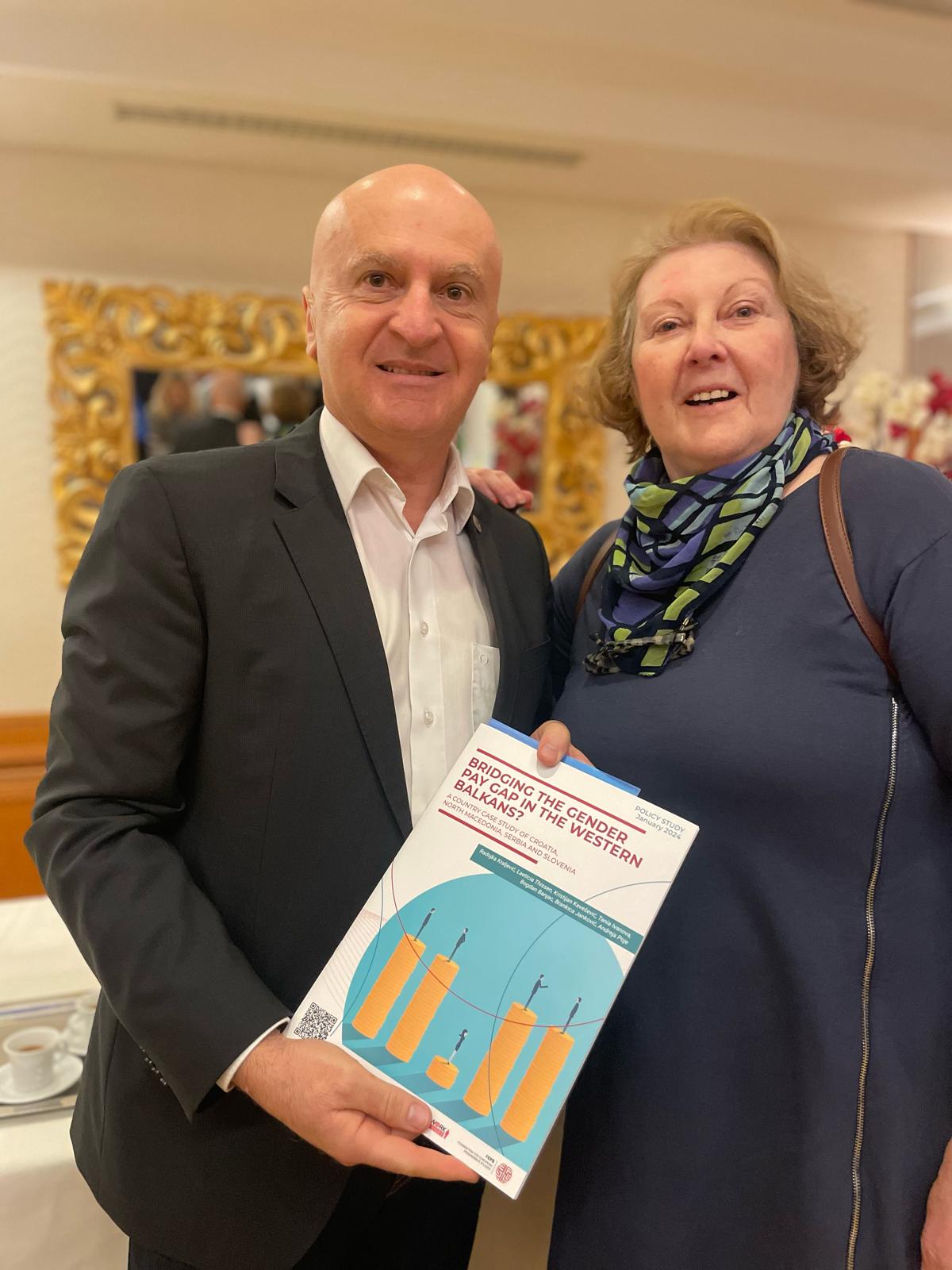
International Women's Day 2024
International Women's Day 2024
International Women’s Day was marked through various events throughout the day. In the morning, we participated in demonstrations at Markov Square, followed by the award ceremony for Woman of the Year, honoring Sanja Sarnavka, a prominent feminist. Later, we joined the Night March. However, the most significant part of our day was speaking about sexual harassment during the Women’s Film Festival at the Trešnjevka Cultural Center, located in the oldest working-class neighborhood, at 7:00 PM. – ZAGREB – Park Stara Trešnjevka 1.
We joined the fight against workplace sexual harassment! The Women’s Film Festival and One Billion Rising invited us to an interesting and important event on International Women’s Day, March 8, 2024, at 7:00 PM. The event opened our eyes and inspired us to take action.
First, we watched the classic Croatian film “From 3 to 22” from 1967, directed by Krešo Golik (Zagreb Film), which portrayed the position of women in society.
This segment of the WFF program was part of a European project conducted in collaboration with the Gender Equality Ombudsman and the Center for New Initiatives, addressing the issue of sexual harassment in the workplace. The project had already conducted workshops with employees from HRT, ADU, HUP, and other organizations. They’d also launched a Help Desk at the Gender Equality Ombudsman to report cases and provide legal assistance. Future steps included a media campaign in partnership with the Women’s Film Festival and the creation of a new handbook applicable to all EU countries involved in the project. Additionally, they planned to establish collaboration agreements with journalists’ unions.
After the film, we participated in a panel discussion on “Sexual Harassment in the Workplace and the Importance of Unions”, featuring distinguished experts:
- Višnja Ljubičić, Gender Equality Ombudsman
- Radojka Kraljević, Psychologist
- Lovorka Marinović, Center for New Initiatives in the Workplace
- Maja Sever, President of the Journalists’ Union and President of the European Federation of Journalists (as the moderator)
- Danijela Stanojević, Artistic Director and Producer of WFF/OBR(opening and closing remarks)
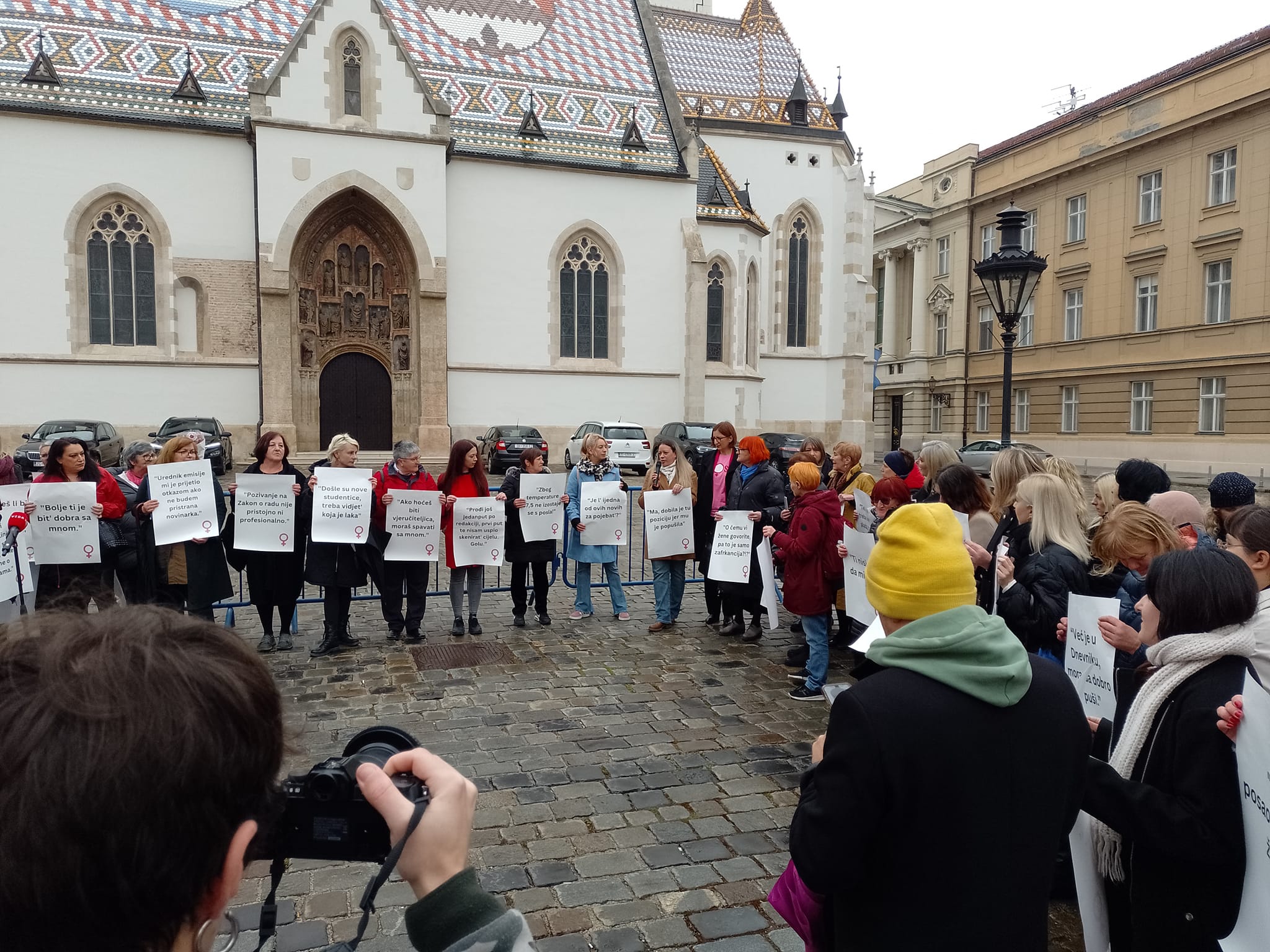
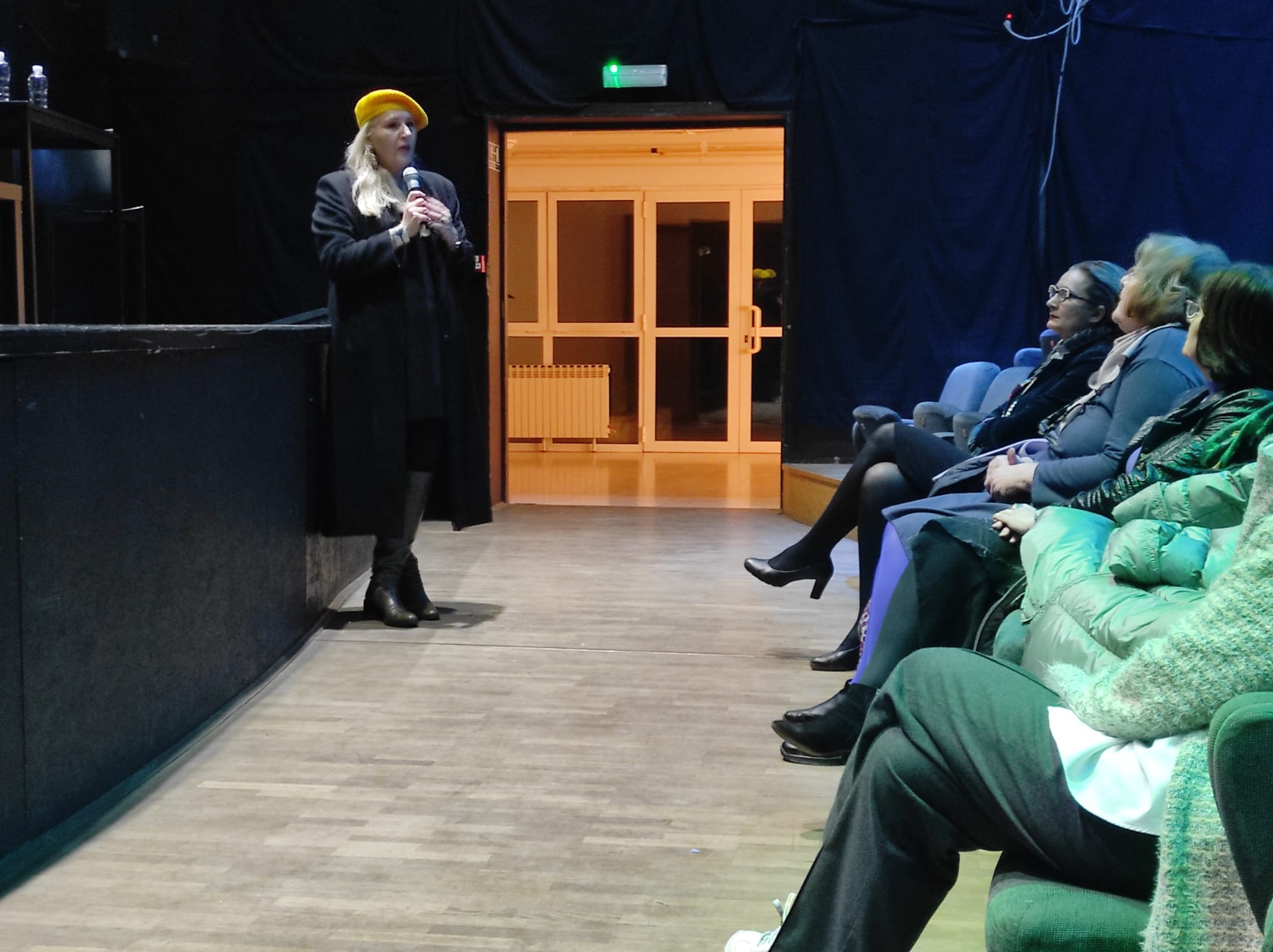
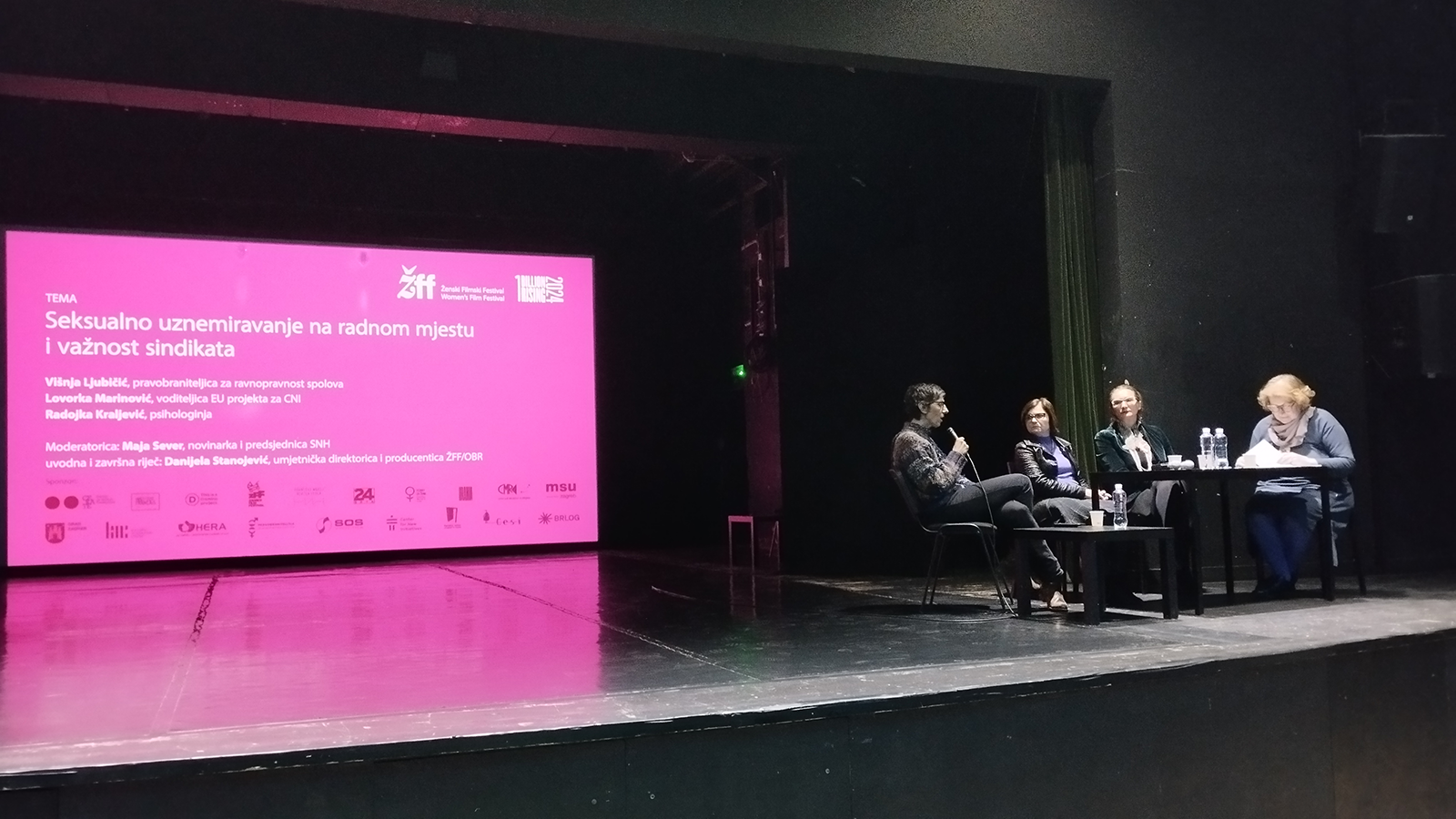
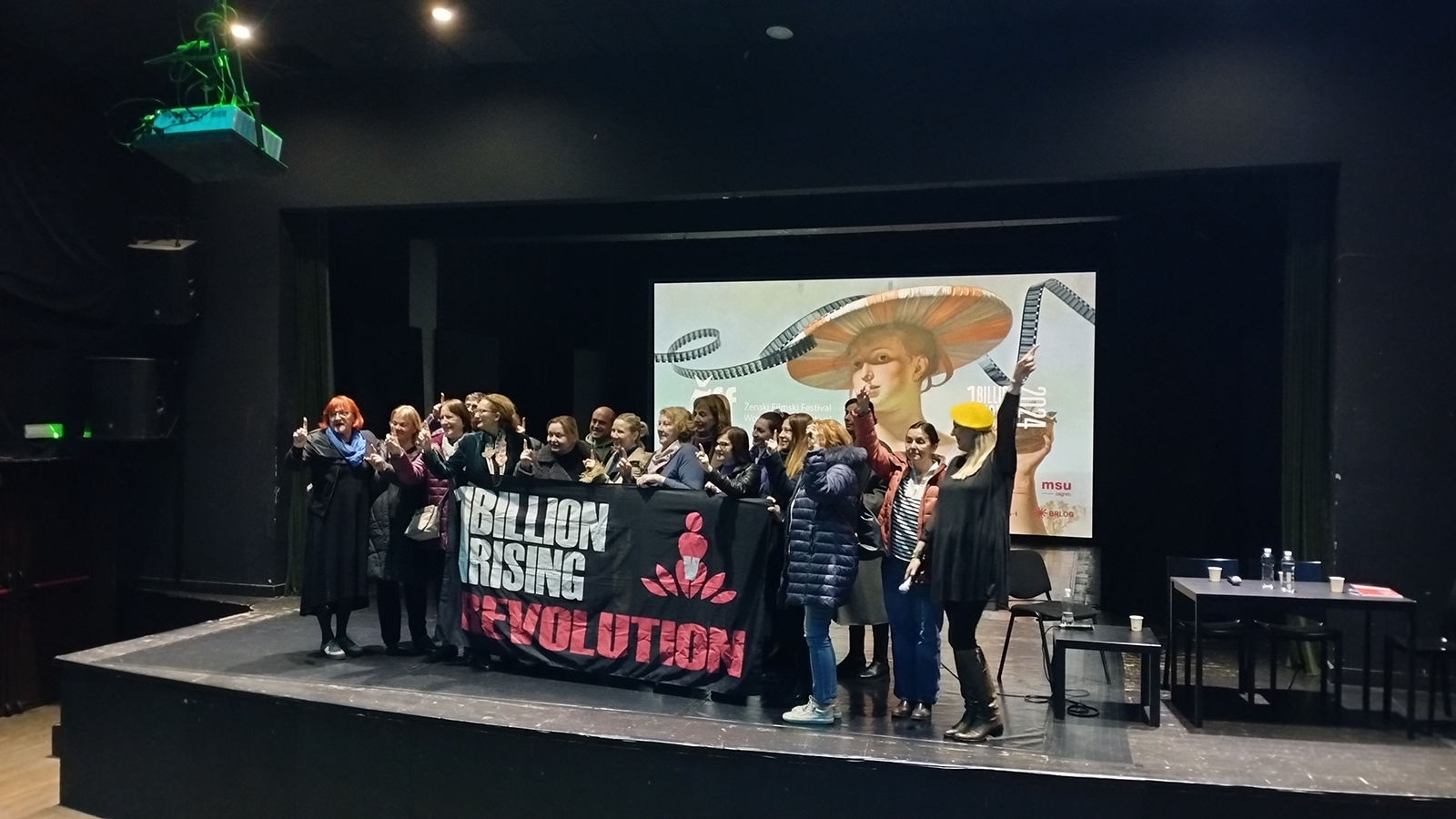
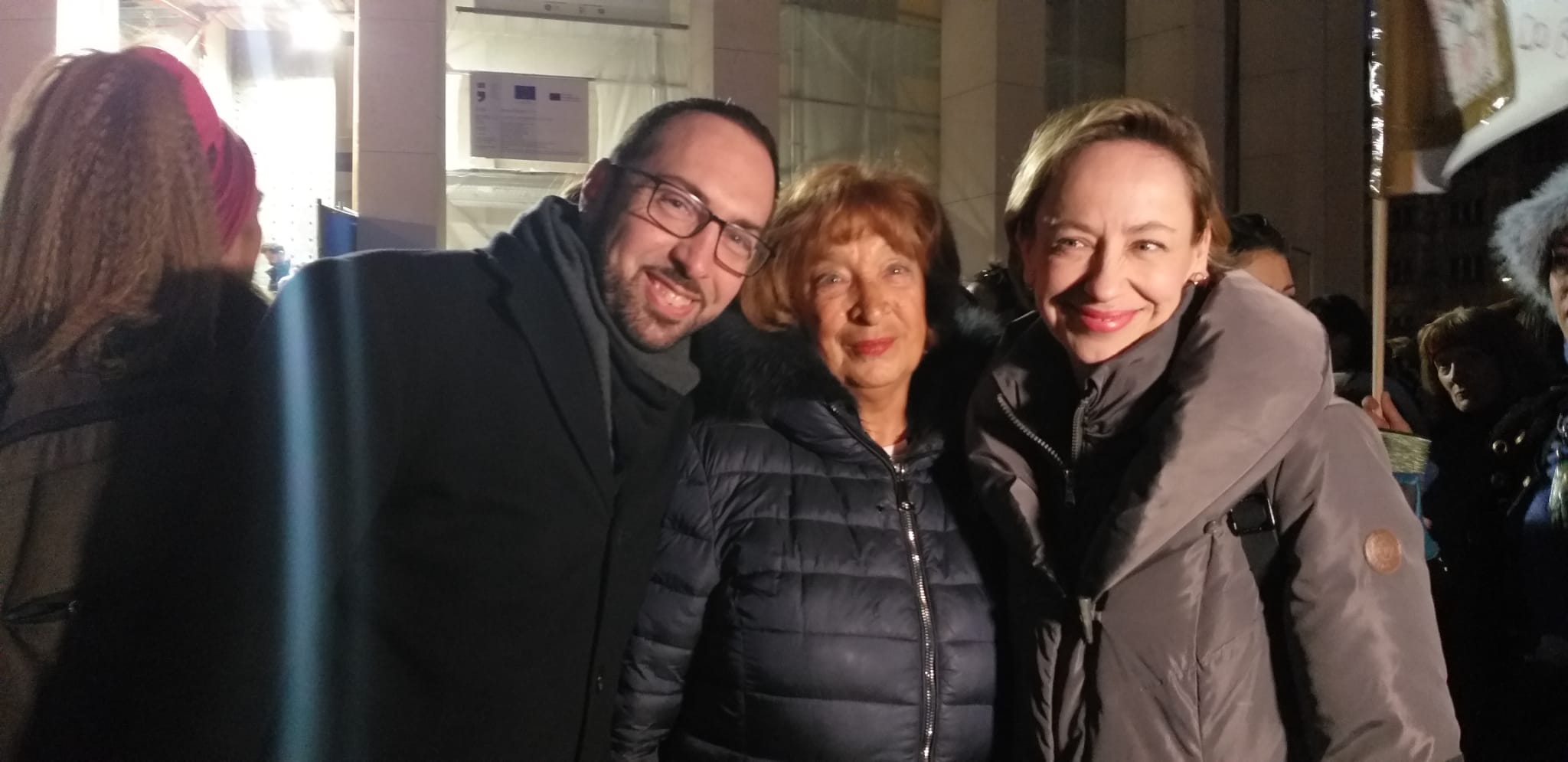
PES Election Congress 2024
Party of European Socialists (PES) Election Congress on March 2, 2024
The recent congress held on March 2nd, 2024, underscored a resolute commitment to the Party of European Socialists (PES) Election Congress. As a prominent political party within the European Union (EU), PES champions social democratic values and policies.
Key Points:
- PES’s Vision: The PES aims to foster a fair, inclusive, and progressive Europe. With a focus on social justice, equality, and solidarity, the party advocates for policies that benefit all citizens.
- Enlargement Process: Amid discussions, the congress addressed the EU’s enlargement process. As the EU considers potential new member states, PES emphasizes the importance of maintaining democratic principles and shared values.
- Stakeholder Engagement: Policymakers, experts, and stakeholders actively participated in exploring strategies and policies related to critical issues. Their commitment to shaping a better future for Europe was evident throughout the congress.
PES Election Congress serves as a pivotal platform for advancing social democratic ideals and shaping the EU’s trajectory. The commitment demonstrated during this event underscores the party’s dedication to a stronger, more cohesive Europe and CEE Gender Network was there.
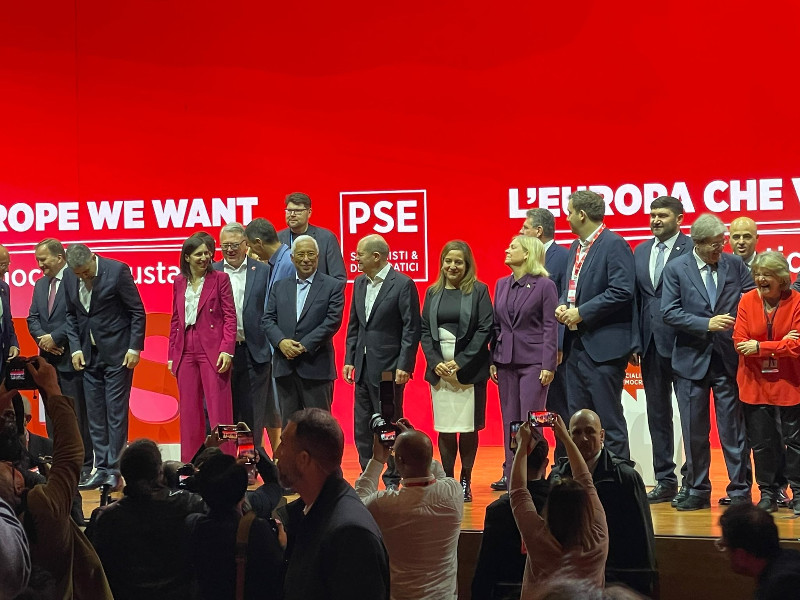
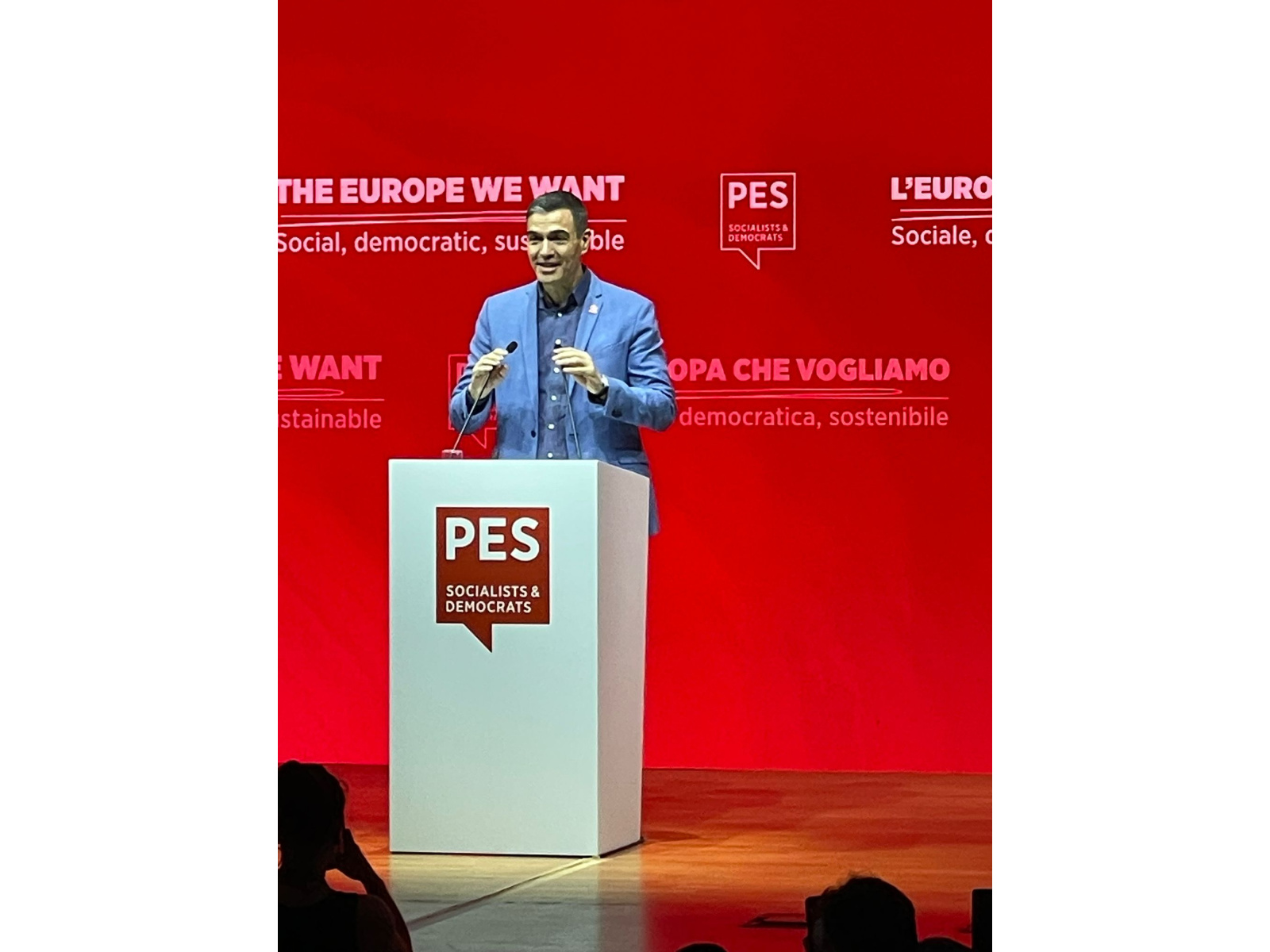
MOMENTUM FOR DEMOCRACY IN THE WESTERN BALKANS
Joint political event organised by the Italian Socialist Party and the Italian Democratic Party in cooperation with the European Forum for Democracy and Solidarity and the CEE Network for Gender Issues
On March 1st, 2024, Rome hosted a significant event that brought together political leaders, experts, and activists to discuss critical issues related to gender equality and democracy in the Western Balkans. The conference aimed to foster dialogue, share insights, and explore pathways toward a more inclusive and equitable future.
The event commenced on Friday, March 1st, serving as a prelude to the main congress scheduled for the following day. Participants gathered at the conference venue, eager to engage in meaningful discussions. Here are some highlights:
- Enzo Maraio(National Secretary, PSI): Enzo Maraio set the tone for the conference by emphasizing the urgency of addressing gender disparities in the Western Balkans. As a prominent political figure, his insights resonated with the audience.
- Daša Šašić Šilović(Chair, CEE Network for Gender Issues; Board Member, European Forum for Democracy and Solidarity): Daša’s expertise in gender advocacy and her commitment to democratic values made her a compelling speaker. Her call for collective action reverberated throughout the room.
Panel Discussion: “Are the Balkans and the Neighborhood Boiling?”
The afternoon session featured a lively political debate and Q&A session. Distinguished panelists shared their perspectives on regional tensions, social challenges, and the role of gender equality in fostering stability. Notable participants included:
- Radmila Šekerinska (PES Vice President; former Deputy President, SDUM; Minister of Defense, North Macedonia): Radmila’s experience as a leader and advocate underscored the interconnectedness of security and gender rights.
- Borko Stefanović (Deputy President, Party of Freedom and Justice; Vice President, Serbian Parliament): Borko’s insights shed light on the delicate balance between political freedom and social justice.
- Zita Gurmai (President, PES Women; MP, Hungary): Zita’s passionate advocacy for women’s rights resonated with the audience, emphasizing the need for cross-border collaboration.
- Saša Magazinović (Member, National House of Representatives, Bosnia and Herzegovina; Representative in the Council of Europe Parliamentary Assembly): Saša’s presence highlighted the importance of parliamentary engagement in advancing gender equality.
Panel Discussion: “Is Commitment to EU Enlargement Real?”
- Matilda Ernkrans (Deputy Chair, Committee on EU Affairs in the Swedish Parliament; former Minister of Development Aid, Sweden): Matilda’s pragmatic approach emphasized the need for tangible actions to align with EU standards.
- Bojan Marichikj (First Deputy Prime Minister, Government of North Macedonia; International Secretary, SDUM): Bojan’s insights highlighted the delicate balance between national sovereignty and European integration.
- Adnan Dibrani (MP, Sweden): Adnan’s perspective underscored the challenges faced by aspiring EU members and the importance of political will.
- Piero Fassino (Partito Democratico; MP): Piero’s presence (though tentative) added depth to the discussion, emphasizing the role of political parties in the enlargement process.
Moderators
- Daša Šašić Šilović (Chair, CEE Network for Gender Issues; Board Member, European Forum for Democracy and Solidarity): Daša skillfully guided both panels, ensuring a balanced and informative exchange of ideas.
- Pia Locatelli (International Secretary, PSI; Honorary President, SIW; Board Member, CEE Network for Gender Issues): Pia’s leadership underscored the importance of international cooperation in addressing gender-related challenges.
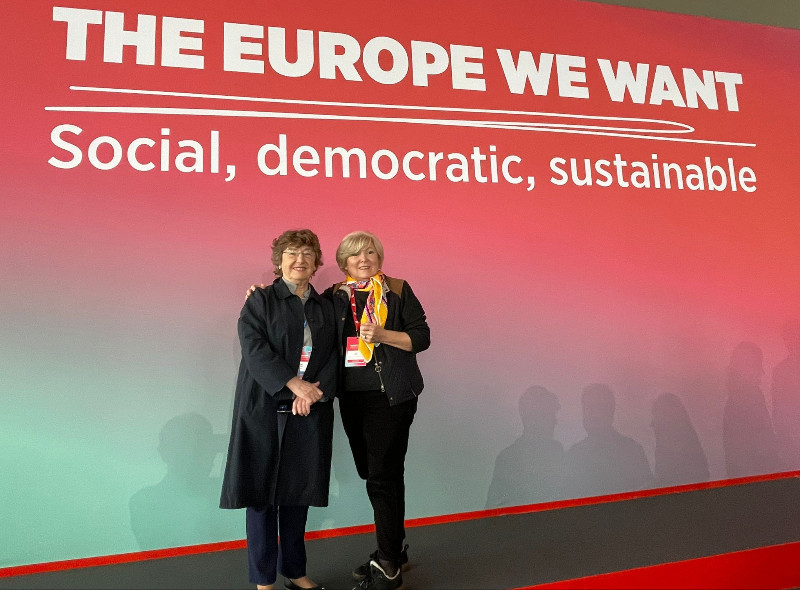
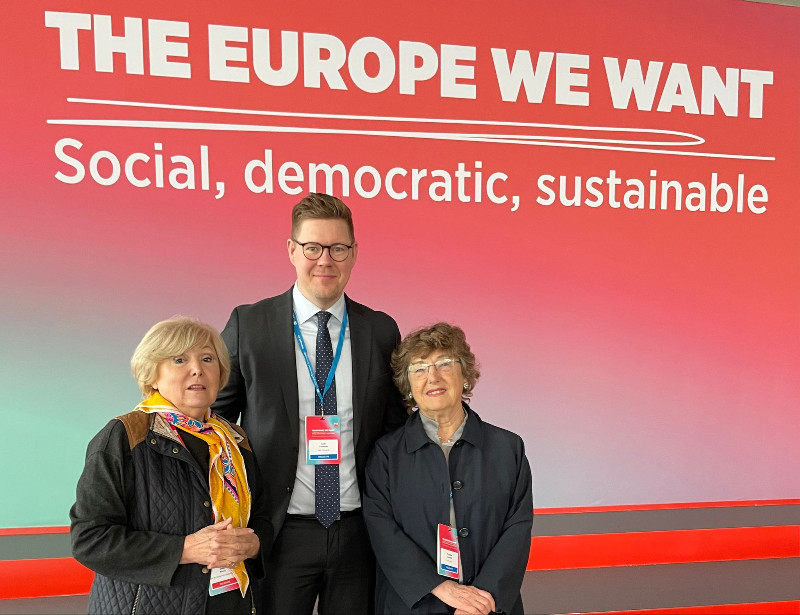
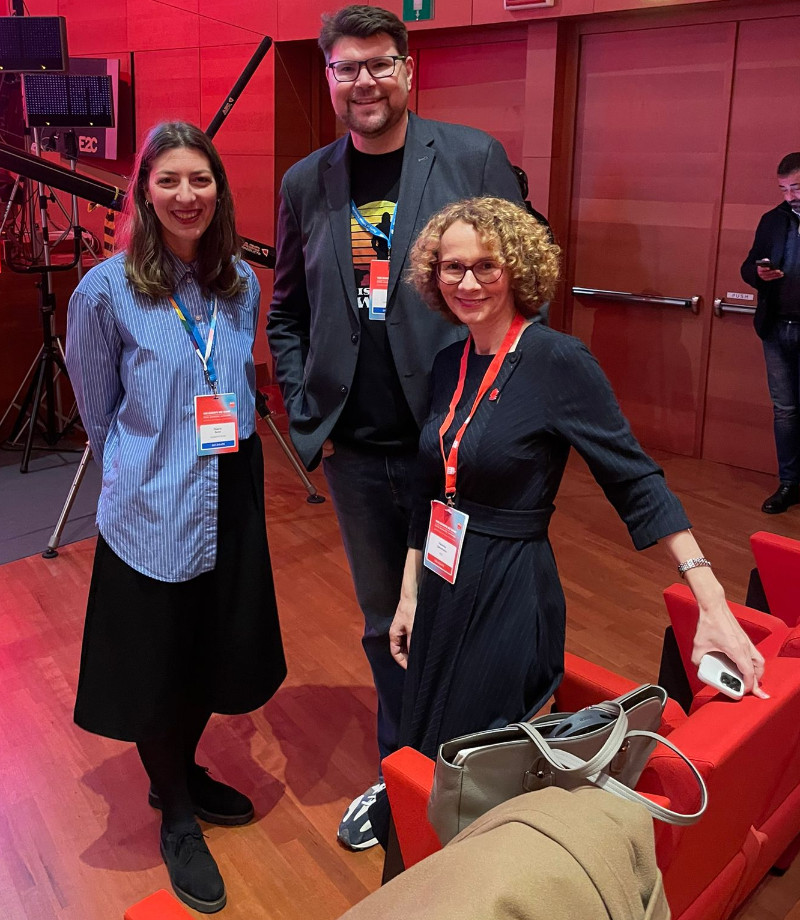
Tuesday 6 February 2024 at House of Europe, Augusta Cesarca 4, Zagreb, Croatia
EU Project on Combating Sexual Violence in the Workplace: 2nd Transnational Project Meeting
On February 6, 2024, an international conference on combating sexual harassment in the workplace was held at the European House of Europe in Zagreb. The conference addressed the issue of sexual harassment, which is a common and serious occurrence that undermines the dignity and safety of workers, particularly women. Many victims hesitate to report such incidents due to fear of job loss, stigmatization, and lack of trust in institutions. Society often downplays or justifies violence, sending discouraging messages to victims.
During the meeting, which took place in Zagreb, representatives from organizations implementing the project in Belgium, Spain, Bulgaria, Italy, Greece, Cyprus, and Croatia decided to continue media campaigns and awareness-raising efforts until the end of the year. Additionally, they plan to create a handbook that explains the reporting systems and mechanisms for addressing workplace sexual harassment.
The “Teamwork 2” project, funded by the European Union through the Rights, Equality, and Citizenship program, focuses on preventing and addressing cases of sexual harassment in the workplace. The project aims to educate and empower victims, employers, trade unions, and civil society organizations to recognize, report, and address violence. It also seeks to improve mechanisms for victim protection and perpetrator accountability.
Thirteen civil society organizations from seven European countries—Croatia, Greece, Italy, Spain, Bulgaria, and Cyprus—participate in the project alongside the Gender Equality Ombudswoman. Together, they aim to establish a functional victim protection system through the “Teamwork 2” initiative.
Nikos Moraitis, from the Industrial and Business Training Institute in Greece, succinctly described the project as follows: raising awareness in companies about the issue of sexual harassment in the workplace, empowering workers to come forward and report incidents of sexual harassment, and assisting companies in improving their mechanisms to combat sexual harassment through workshops and education.
Lovorka Marinović, from the Center for New Initiatives, highlighted a grim reality based on statistical data from the UNDP’s Gender Social Norms Index. Over the past decade, there has been no improvement in attitudes toward women. The research, conducted across 80 countries representing 80% of the world’s population, revealed the following:
- 49% of respondents believe that men make better politicians than women.
- Only 27% think that gender equality is crucial for democracy.
- 46% believe that men have greater rights in the workplace.
- 25% consider it acceptable for a man to physically harm his partner.
These findings did not surprise Daša Šilović from the Central and East European Network for Gender Issues. She emphasized that this project aims to confront a culture of violence, particularly in our region. The roots of this violence lie in wars, poverty, fear, and hopelessness, which then manifest across various levels. The issue of power dynamics plays a crucial role—those who are stronger and dominant perpetuate violence. Real change requires policy shifts at decision-making levels; merely taking to the streets is insufficient. The problem persists universally, even when laws exist but are not effectively enforced due to political indifference.
Nebojša Paunović, a legal advisor at the Office of the Ombudswoman for Gender Equality, emphasized that they are partners in the project and that the Ombudswoman offers assistance and support to victims of sexual harassment. He highlighted that through education and continuous training, sensitivity to such offenses is developed, and victims are empowered with the help of their surroundings. By reporting incidents, victims understand the purpose of their complaint. He encouraged both women and men to reach out to the Ombudswoman if they experience sexual harassment in the workplace and their employer fails to protect them. He emphasized that the Office will penalize employers who do not provide mechanisms to safeguard workers’ dignity.
As part of Project Teamwork 2, several companies and public institutions in Croatia will undergo training to prevent sexual harassment in the workplace. Each of us can take action starting tomorrow by not turning a blind eye to violence but instead assisting victims and standing up against perpetrators.

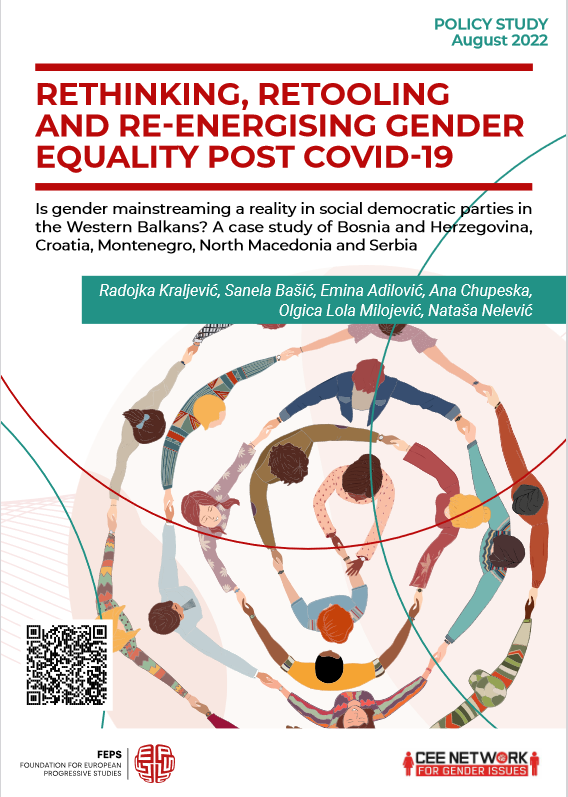
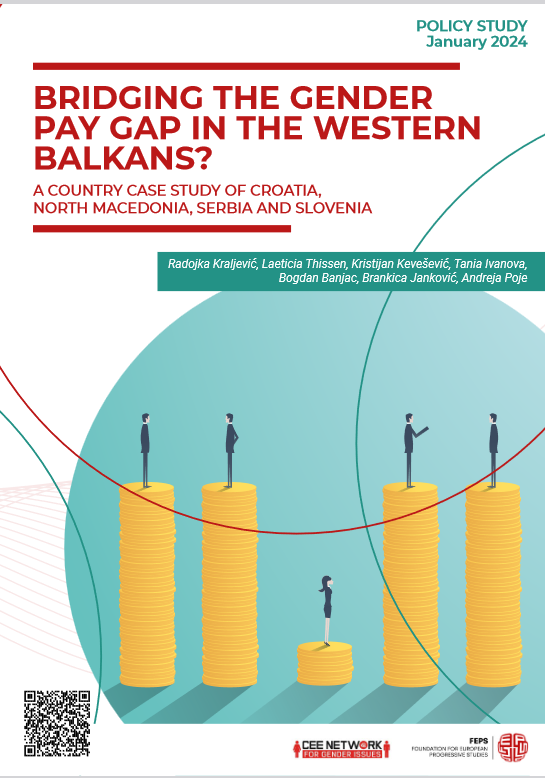
Rethinking, retooling and re-energising gender equality post covid-19
Is gender mainstreaming a reality in social democratic parties in the Western Balkans? A case study of Bosnia and Herzegovina, Croatia, Montenegro, North Macedonia and Serbia
“Rethinking, retooling and re-energising gender equality post covid-19” on the current situation of the implementation of gender mainstreaming in social democratic parties in Bosnia and Herzegovina, Montenegro, Croatia, North Macedonia and Serbia. Is gender mainstreaming a reality in this area? Based on the results obtained, the authors provide a set of policy recommendations for social democratic parties. Acknowledging that gender equality is an important challenge for the future, the objective is to raise awareness and, in turn, guarantee the implementation of gender mainstreaming through the work of women’s forums and social democratic parties themselves.
Bridging The Gender Pay Gap in the Western Balkans?
A country case study of Croatia, North Macedonia, Serbia and Slovenia
The policy study on the gender pay gap in the Western Balkans reveals that while legal frameworks exist, practical implementation remains lacking. COVID-19 exacerbated gender inequalities, and the reduction in the pay gap is a dynamic process. Recommendations include better monitoring and addressing societal context.
TeamWork2 – Combat sexual harassment in the workplace
Athens, Greece March 2023
CNI/CEE Network for Gender Issues, within a consortium of 13 European NGOs from Bulgaria, Belgium, Greece, Italy, Cyprus, Spain and Croatia, launched a joint project on sexual harassment supported by the European Union today in Athens.
